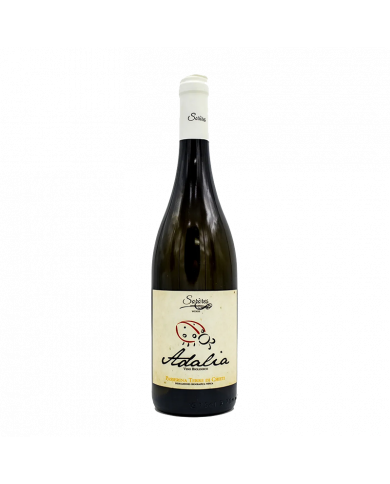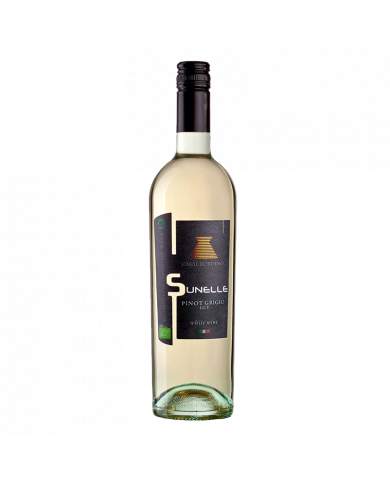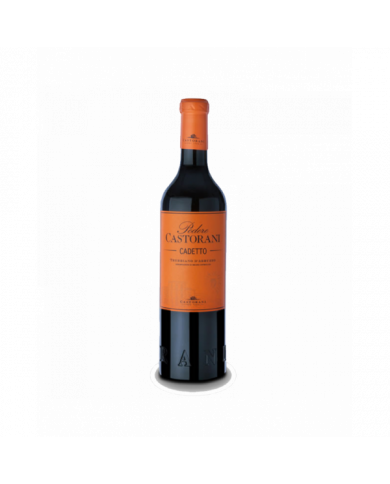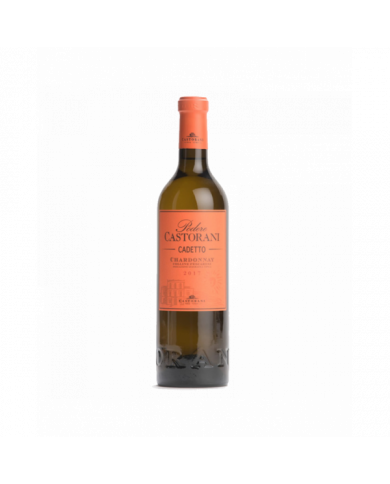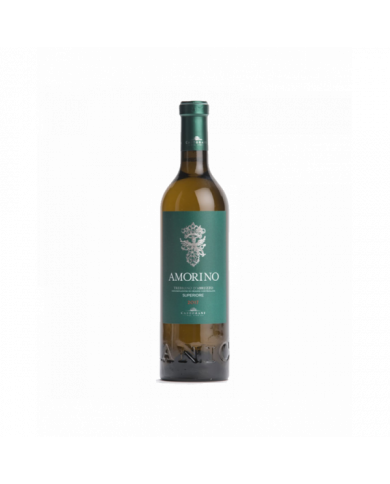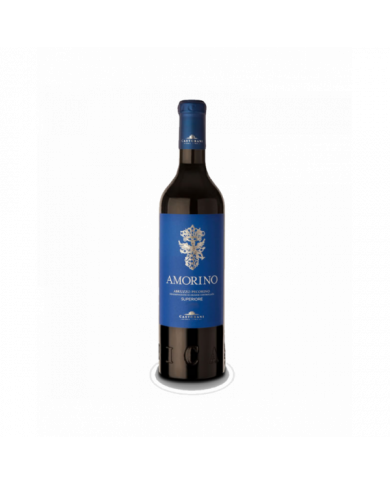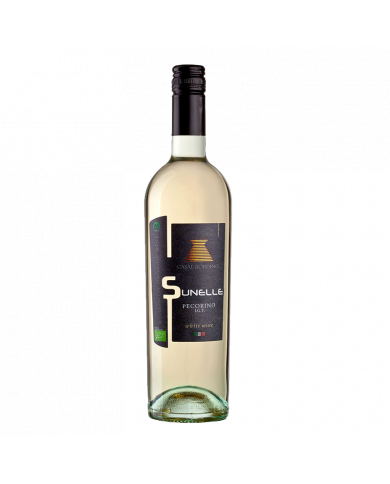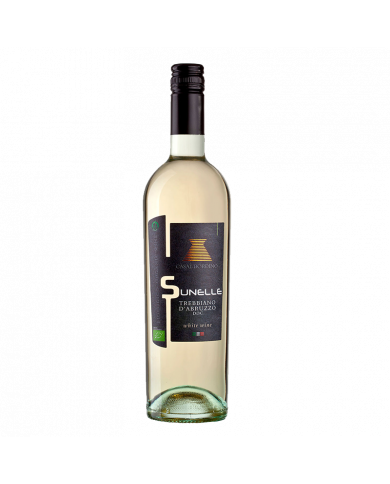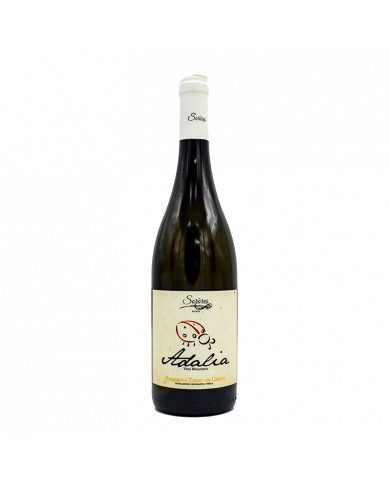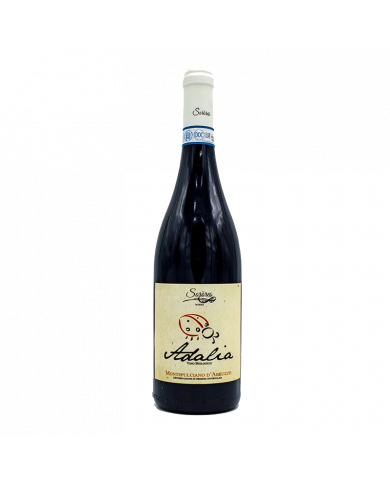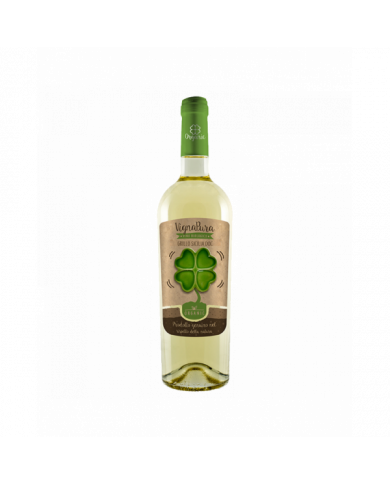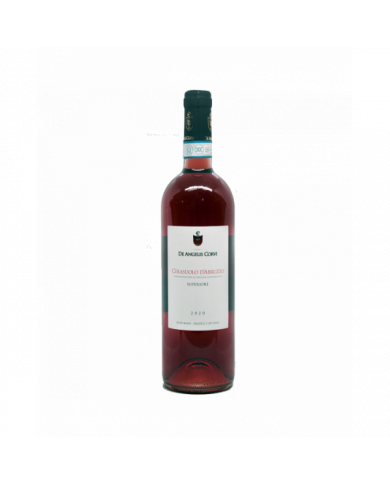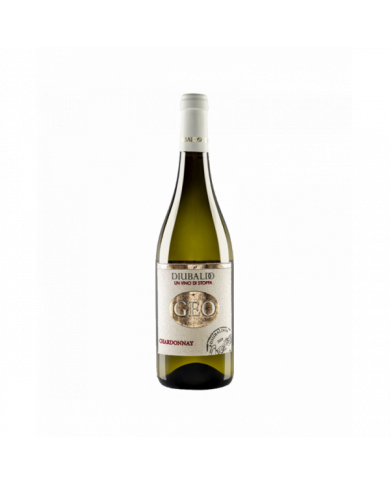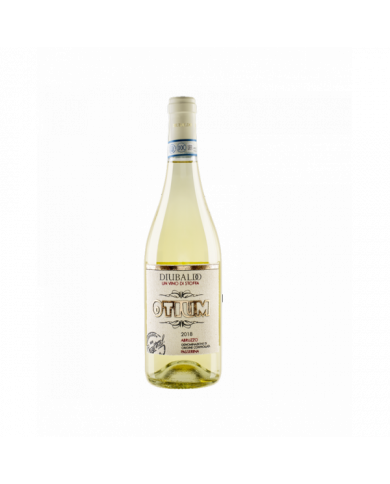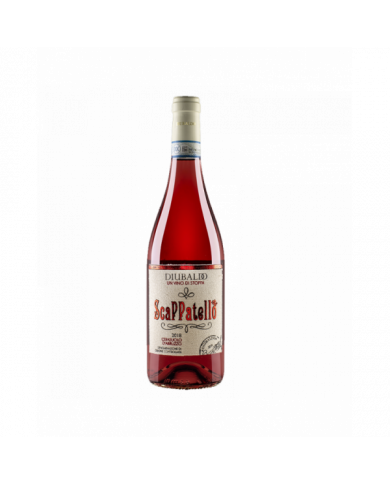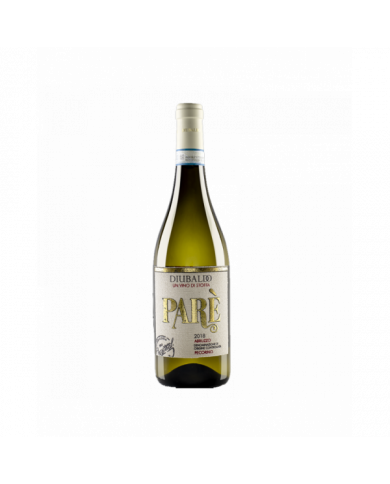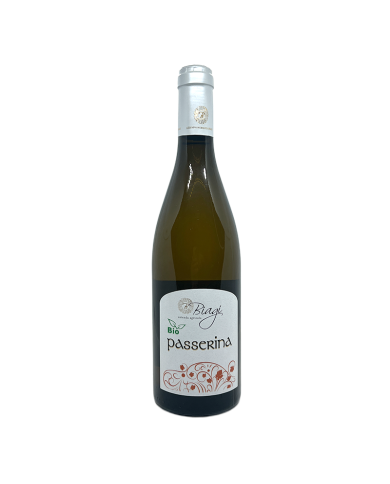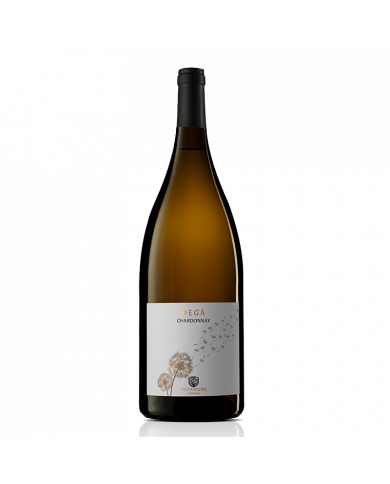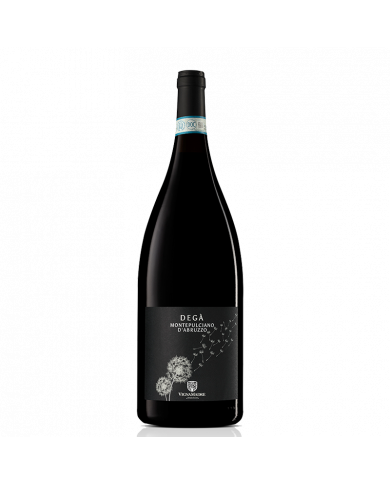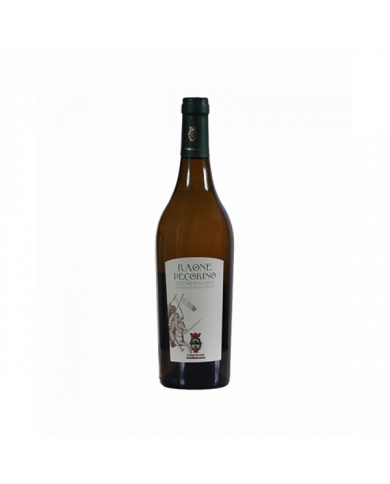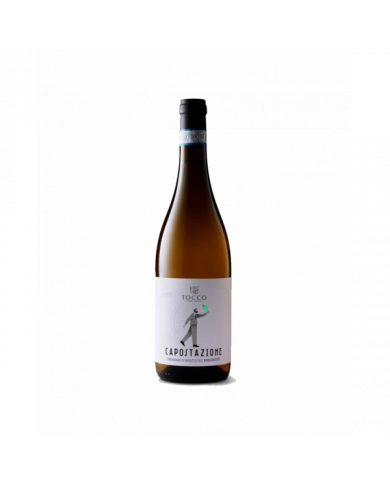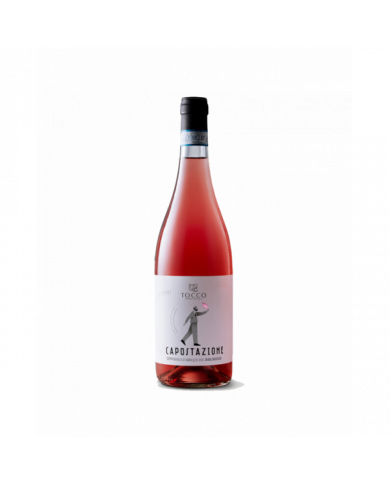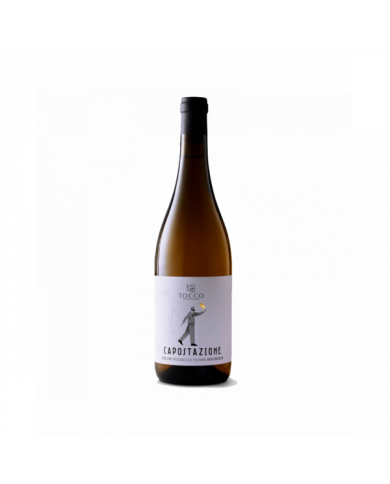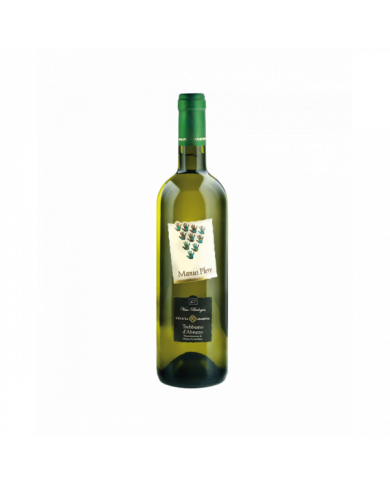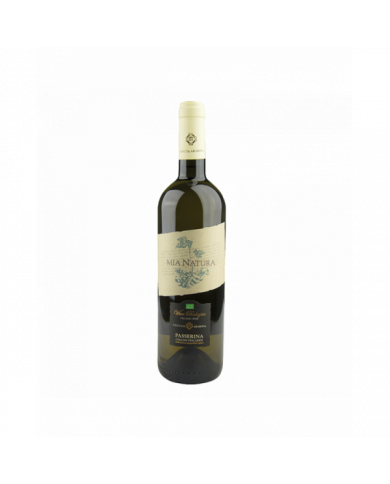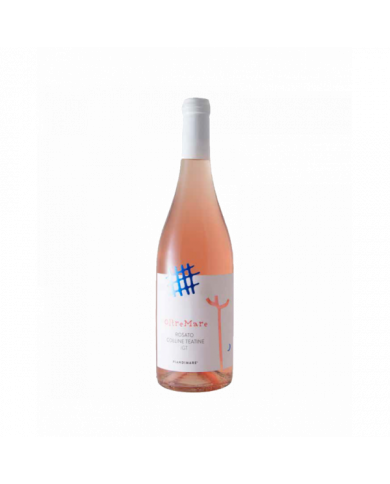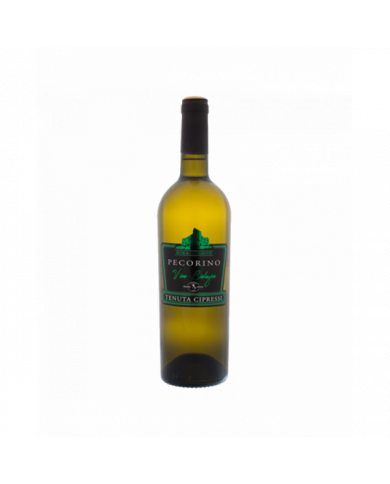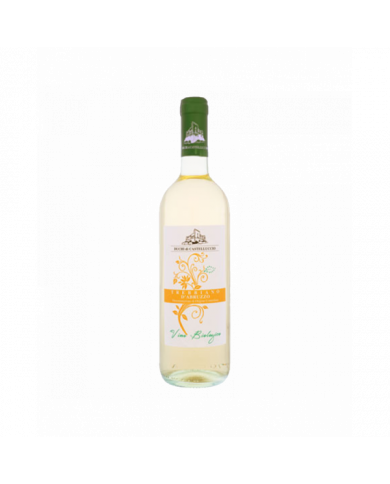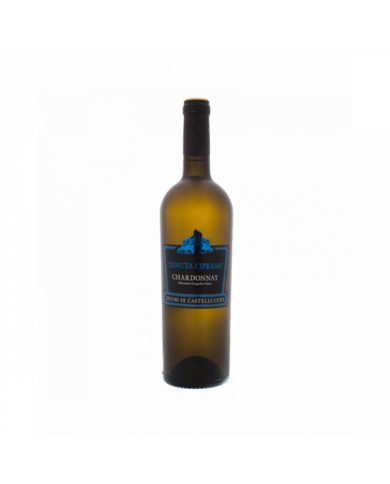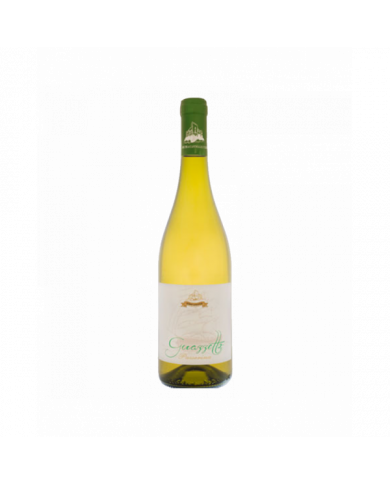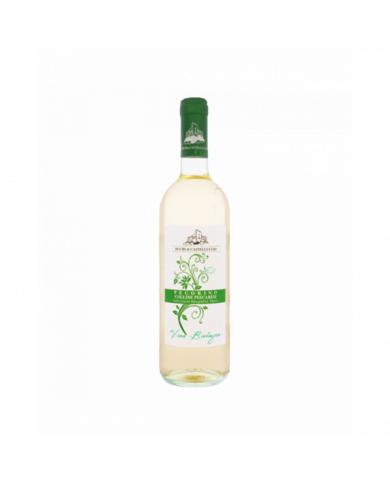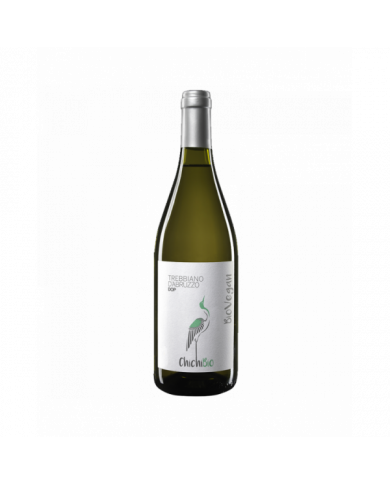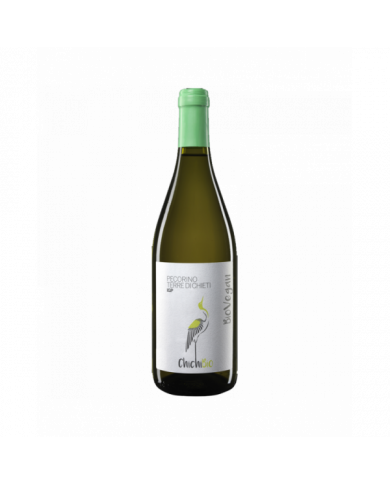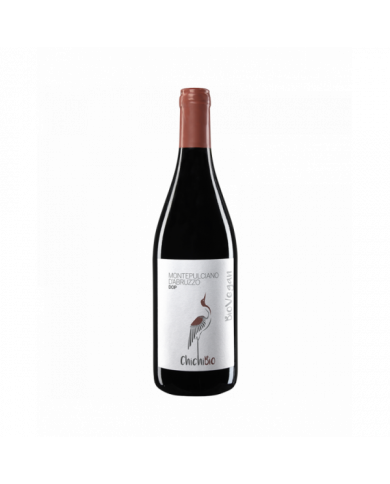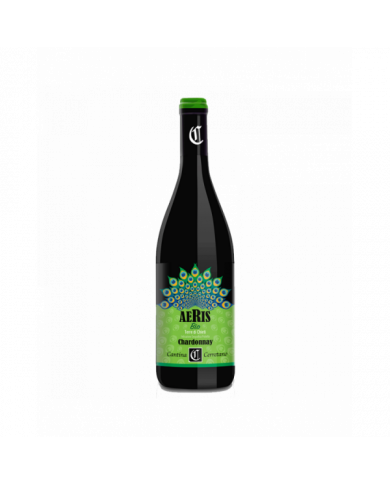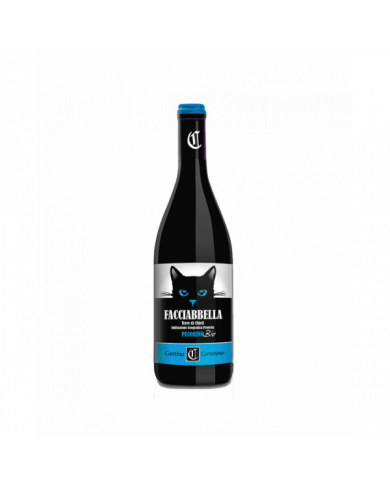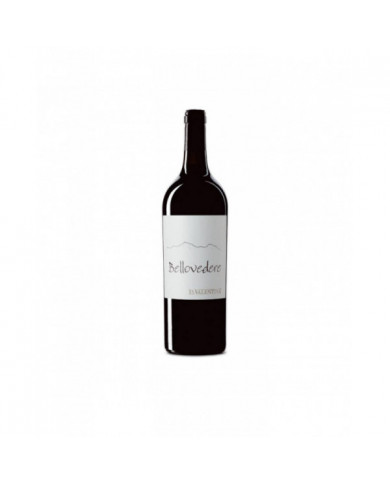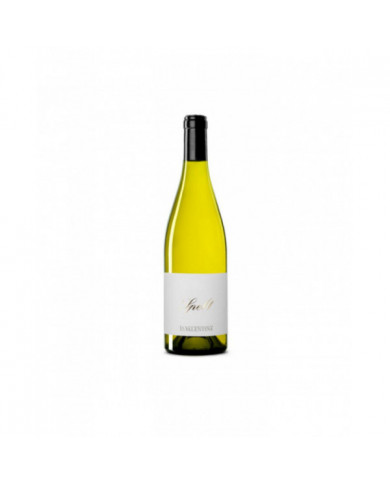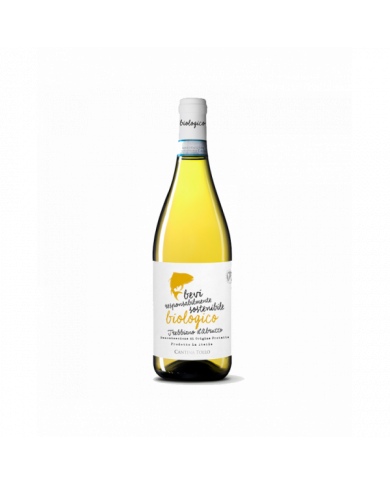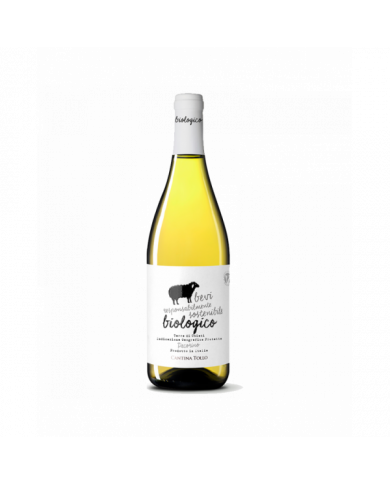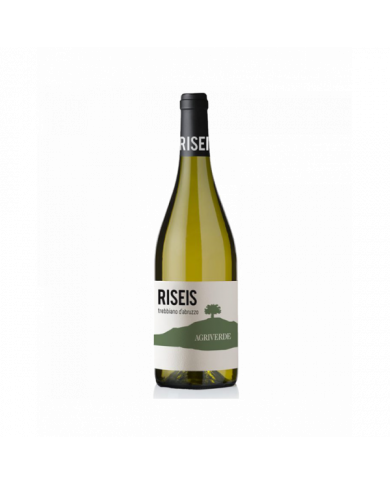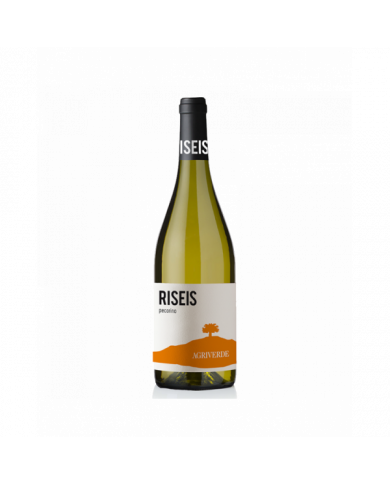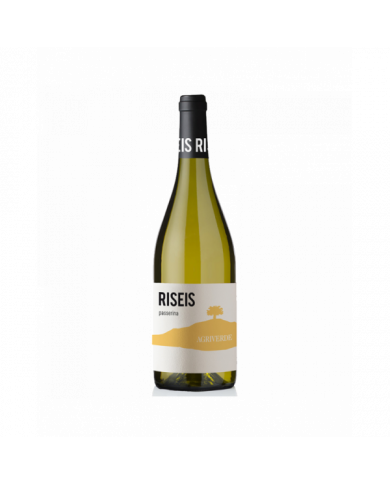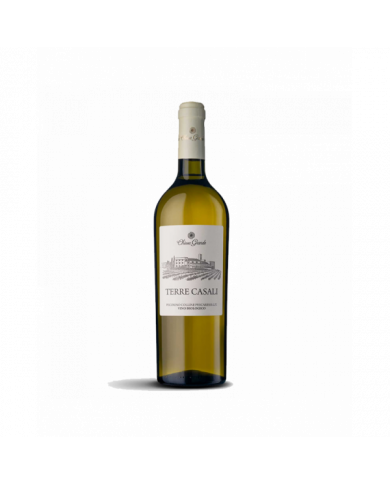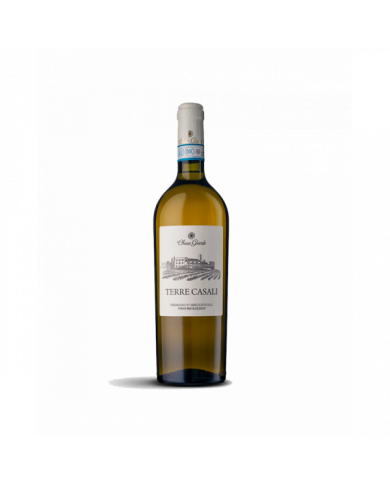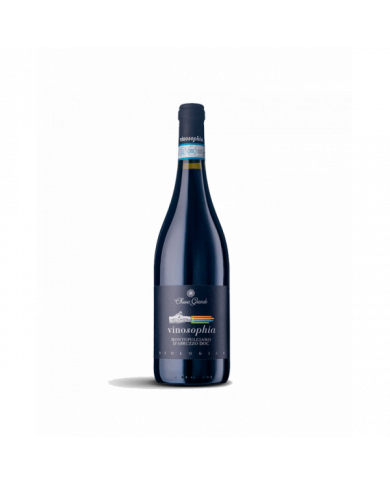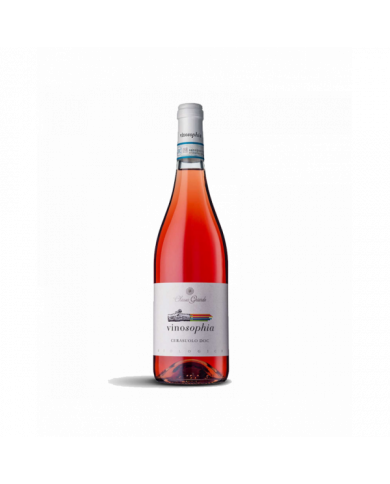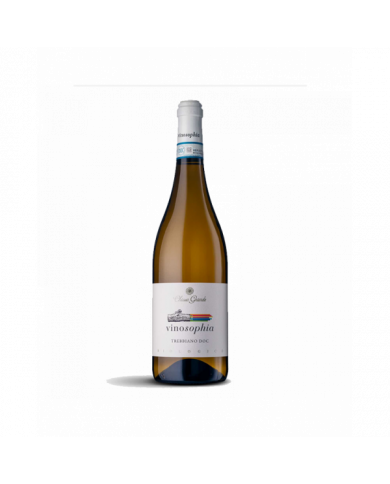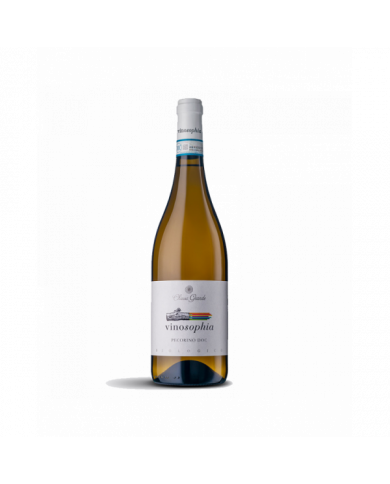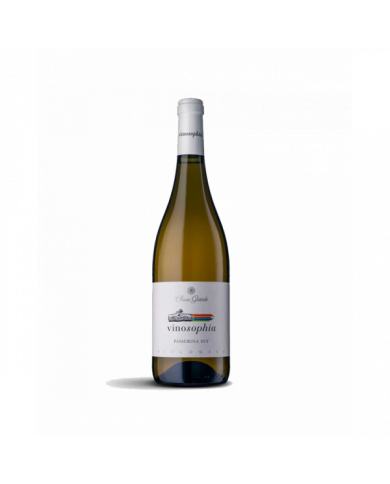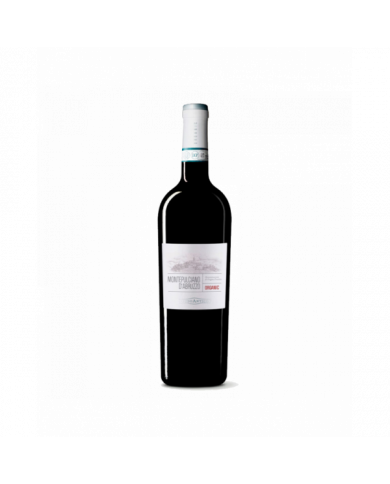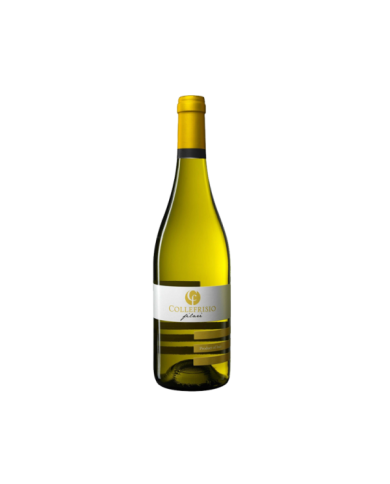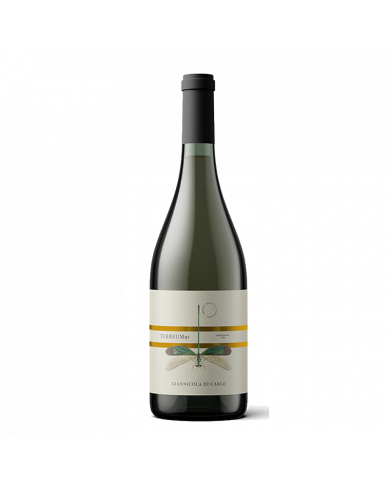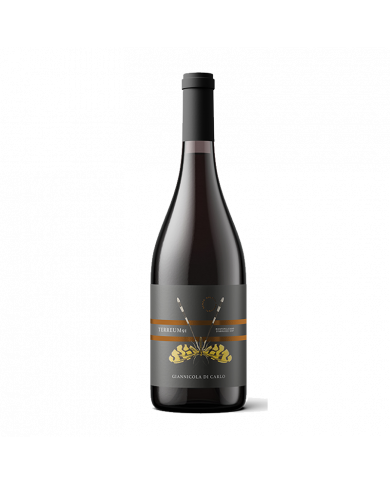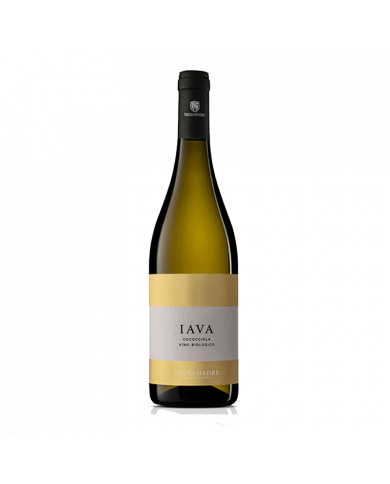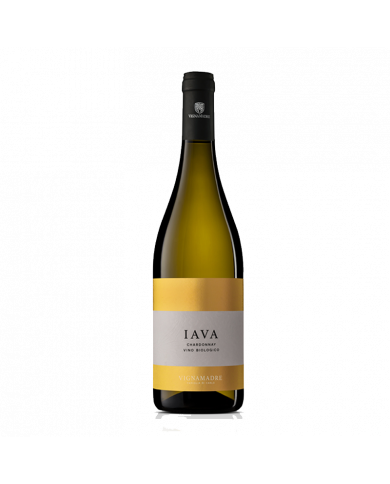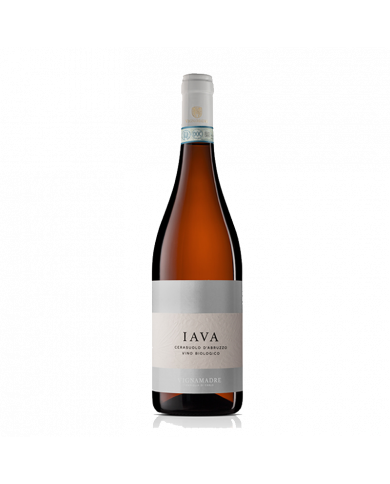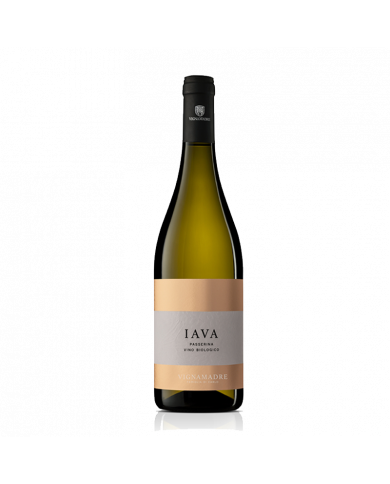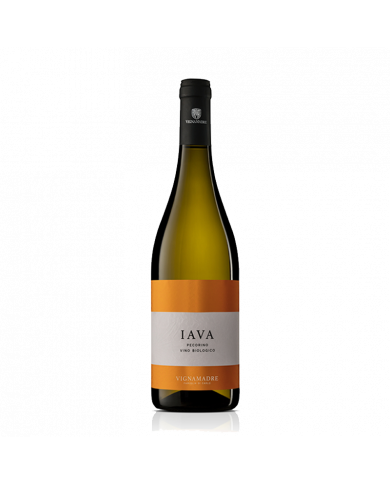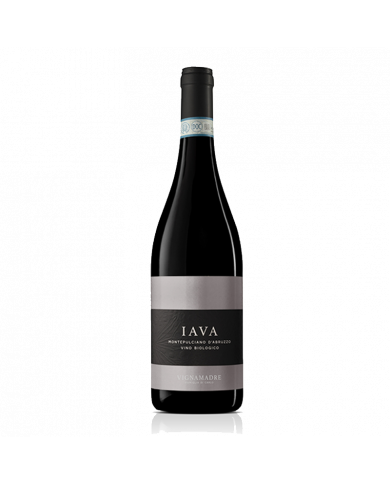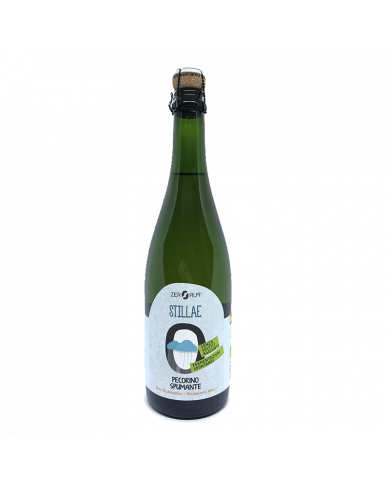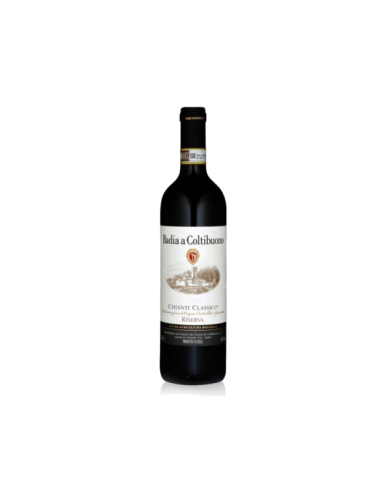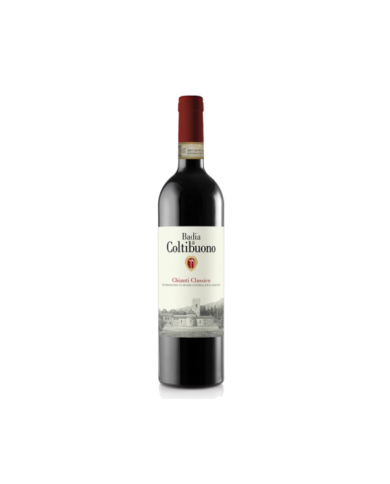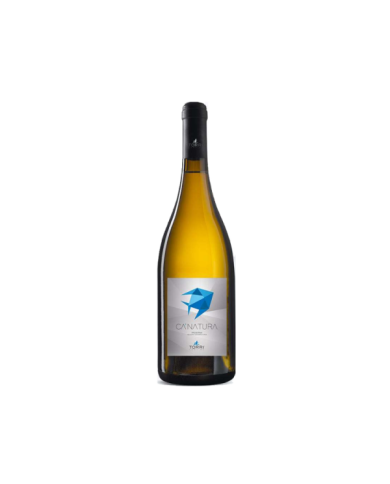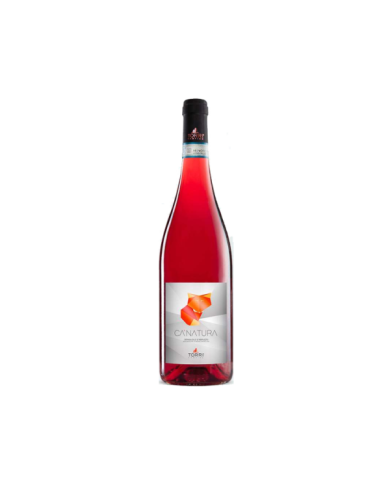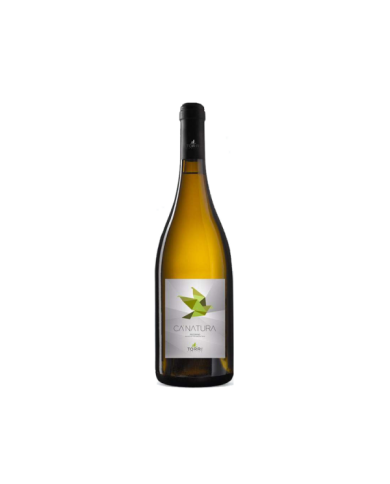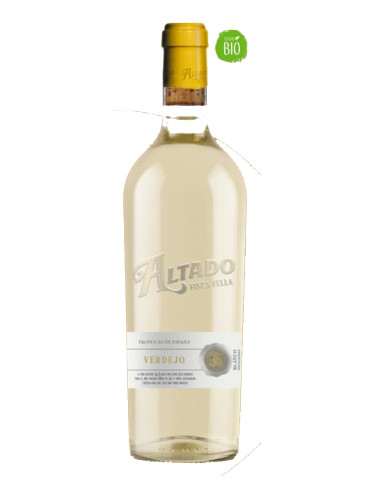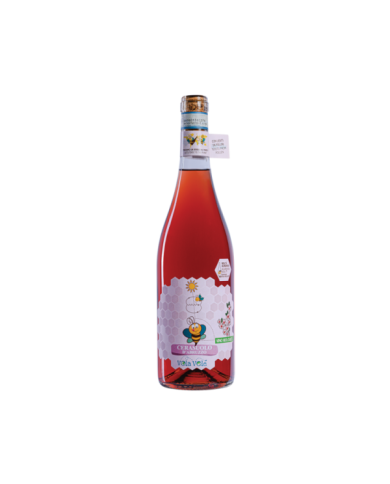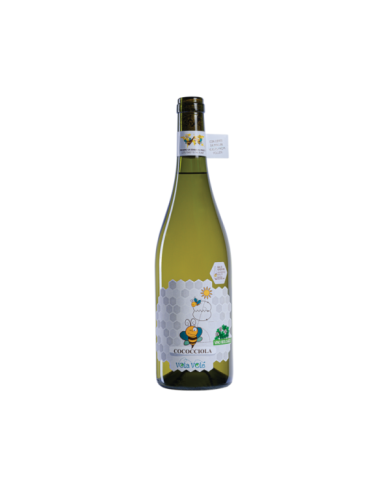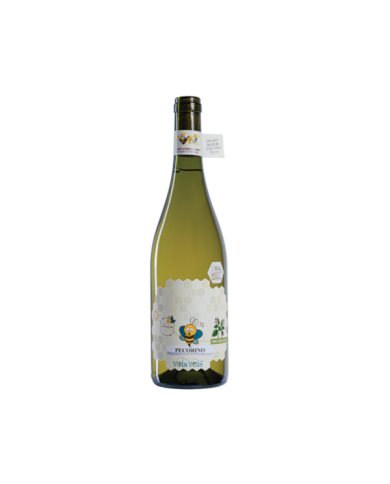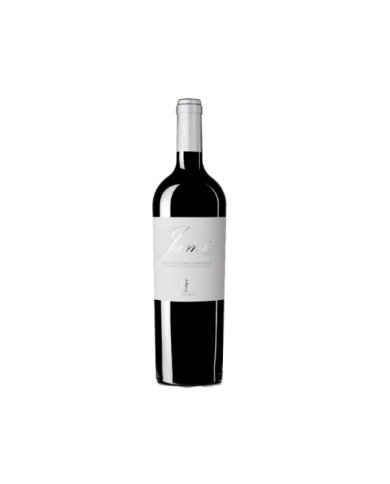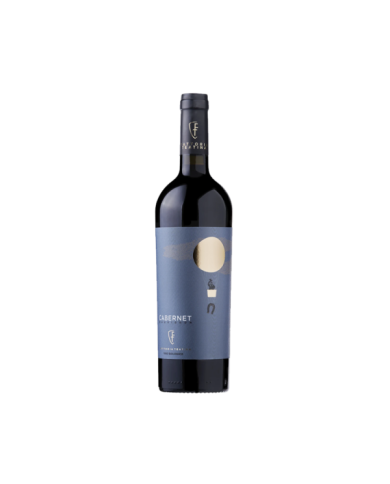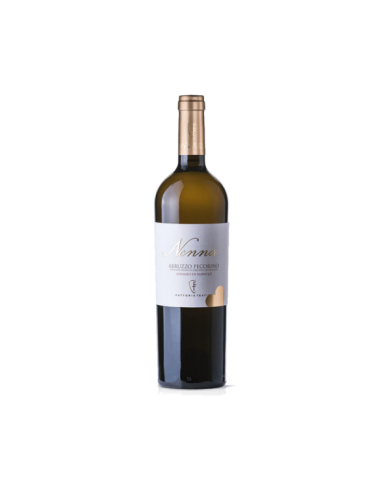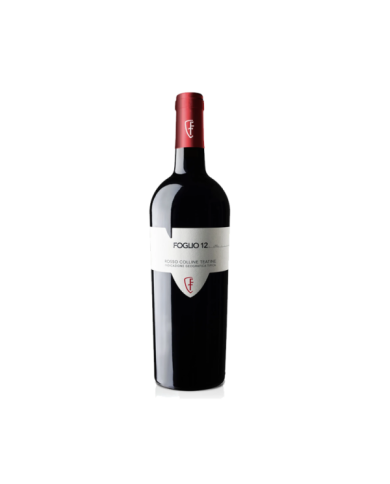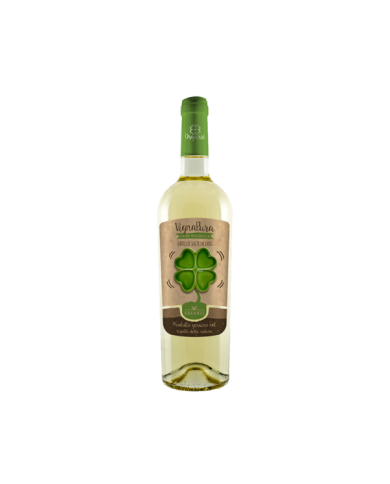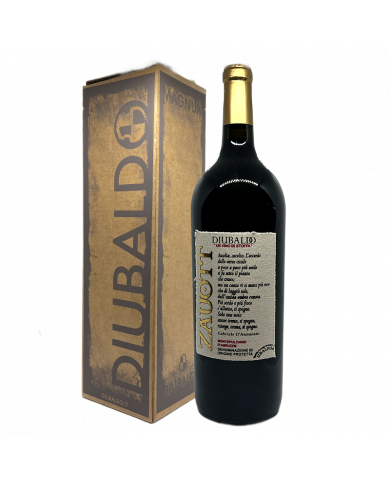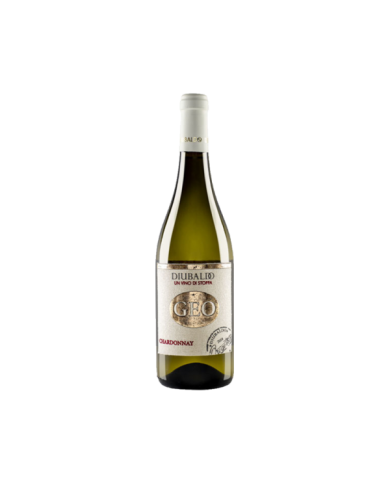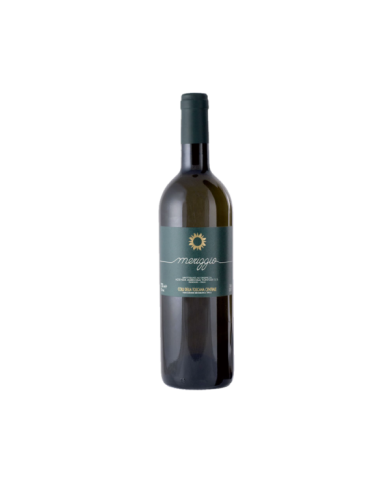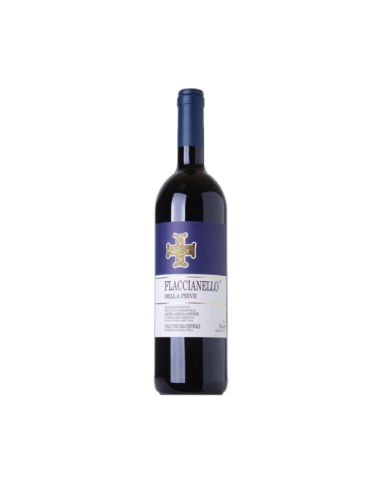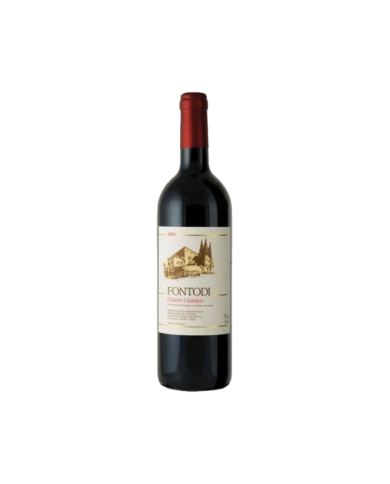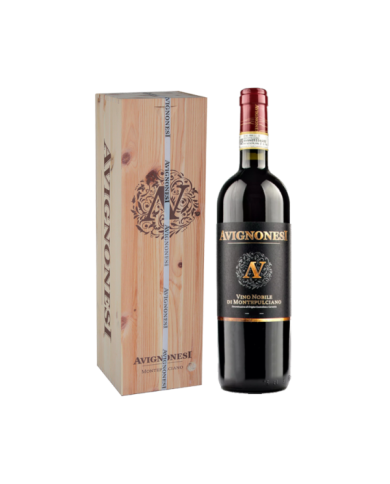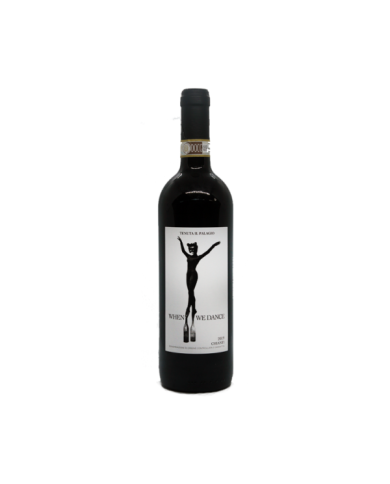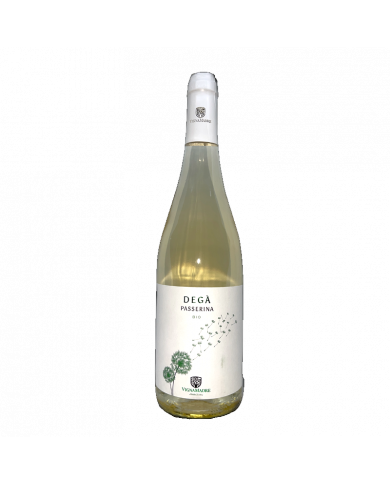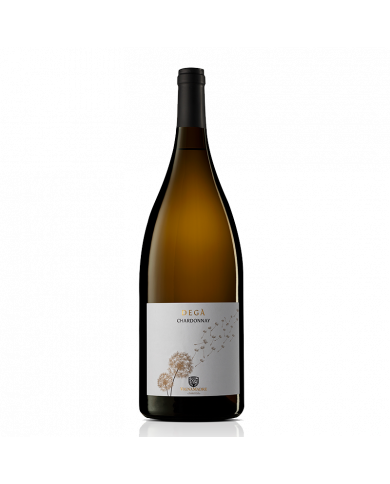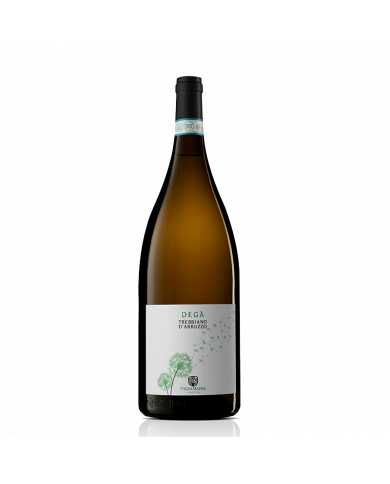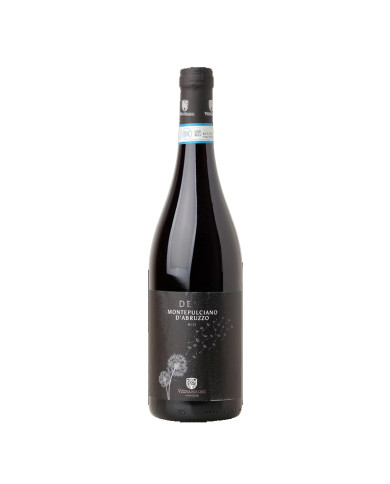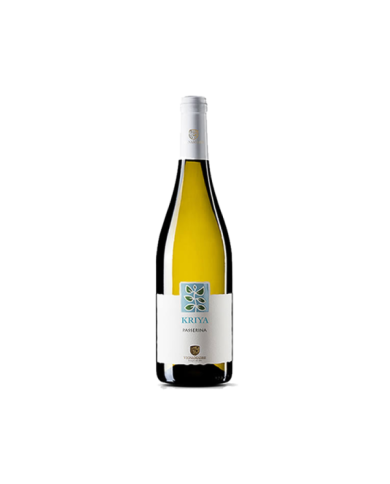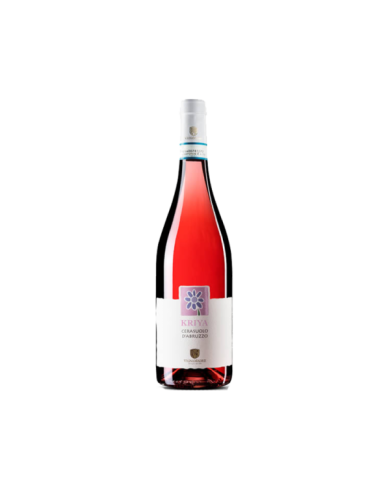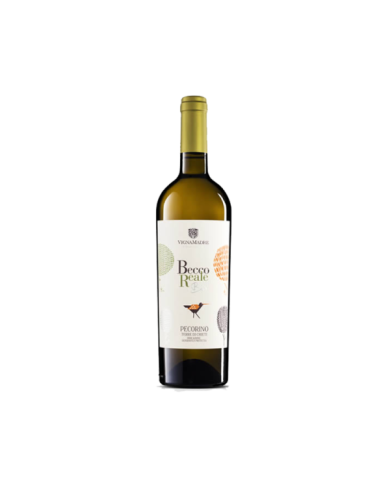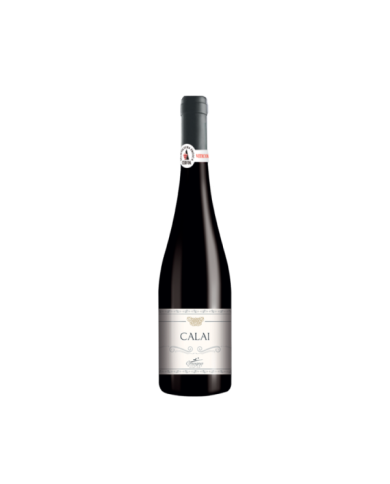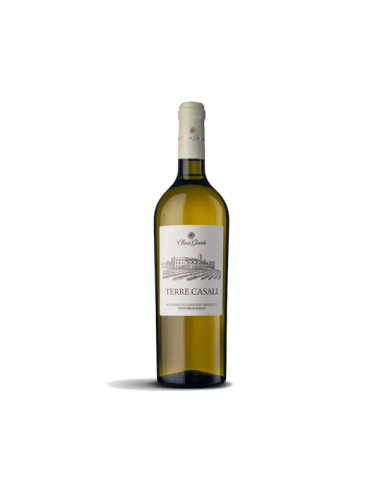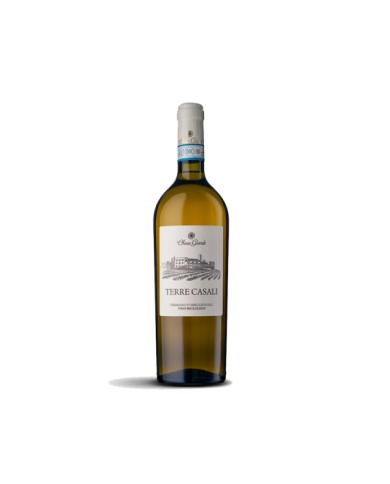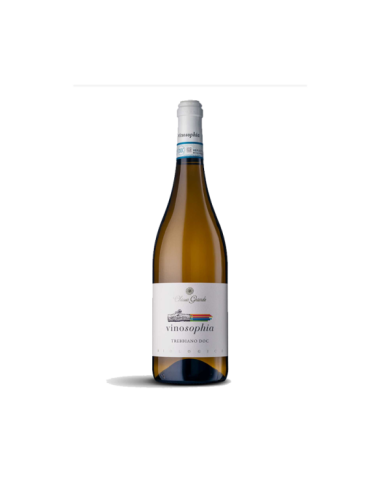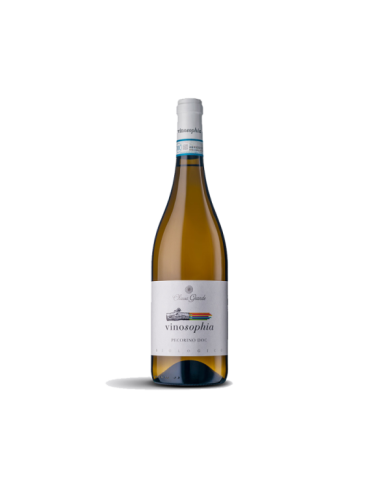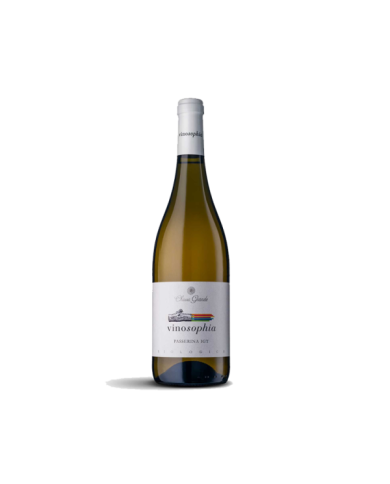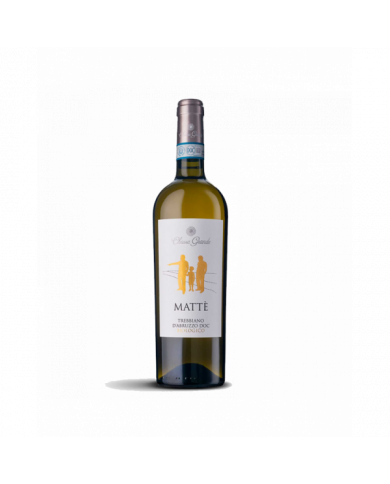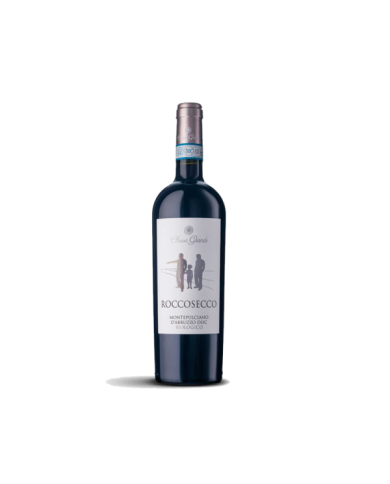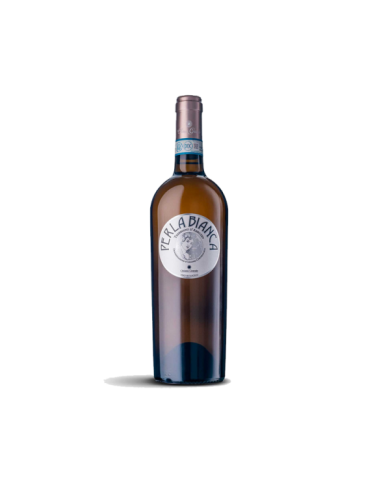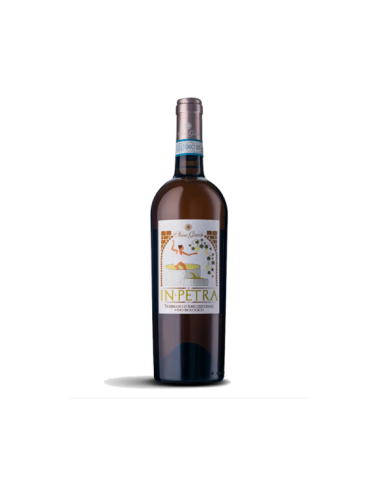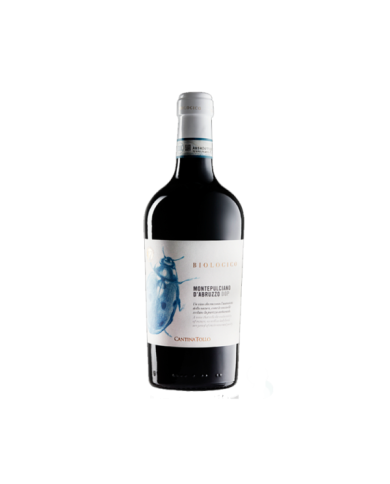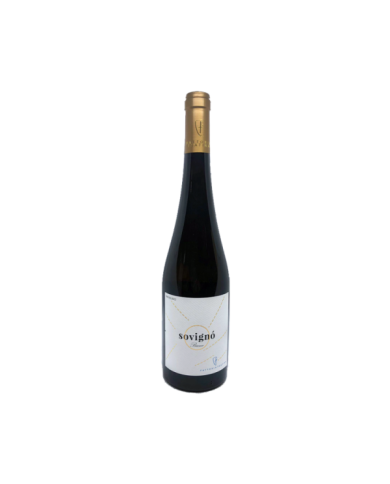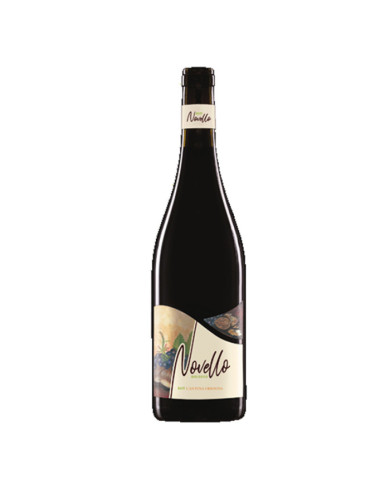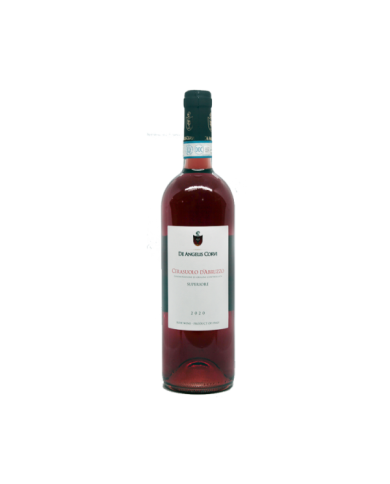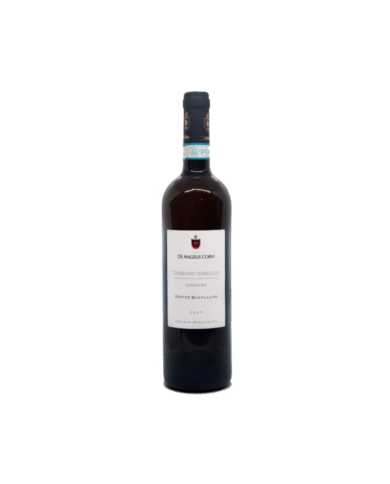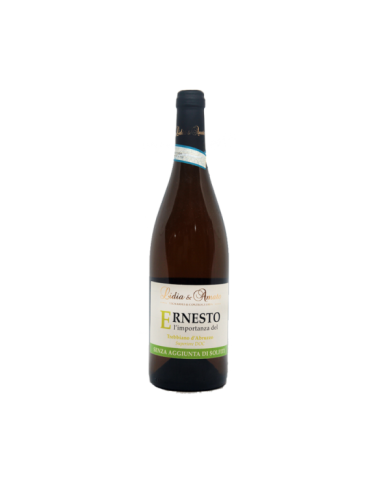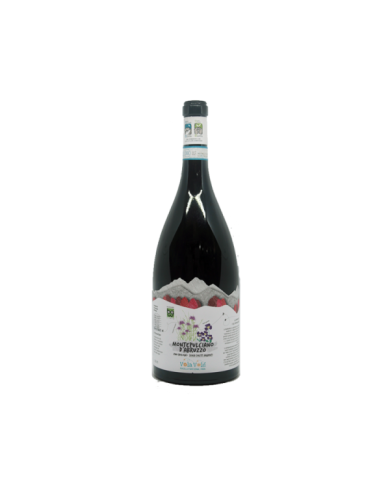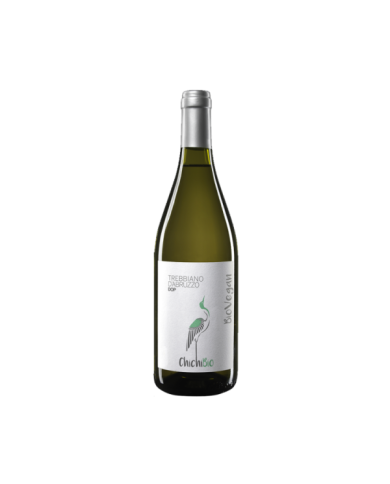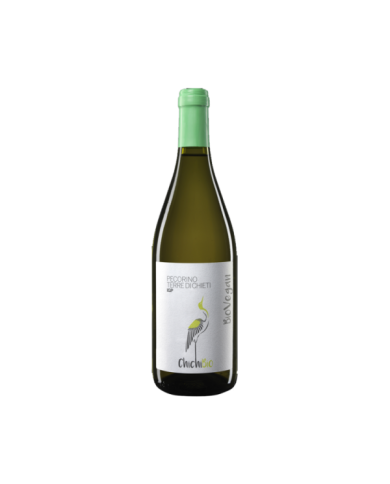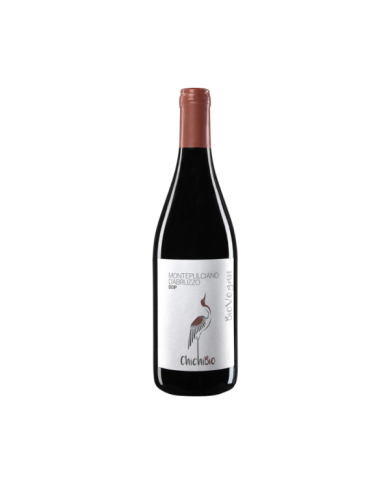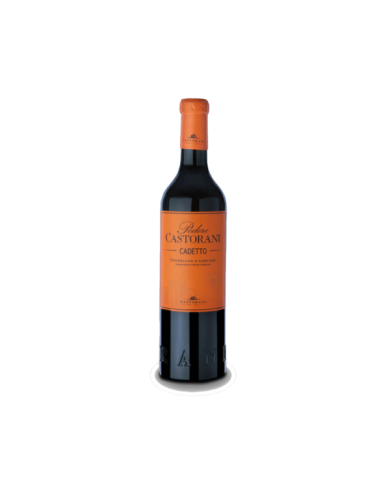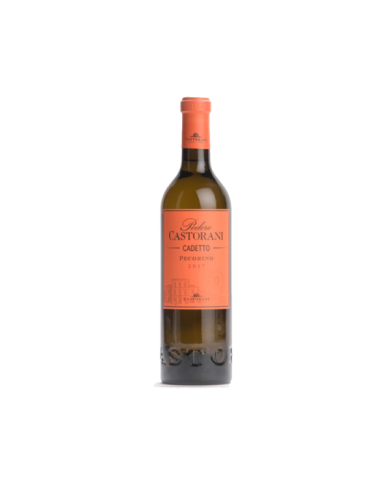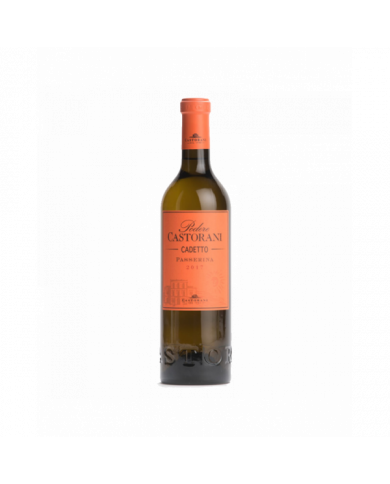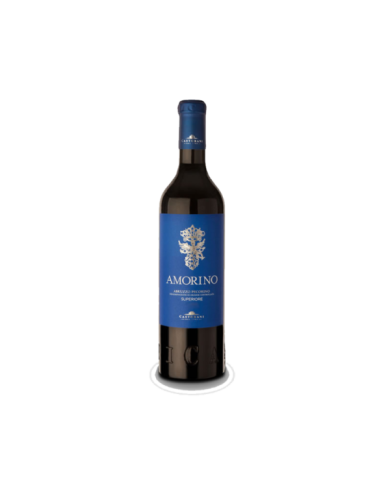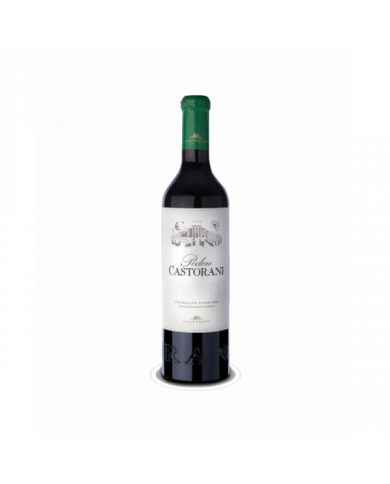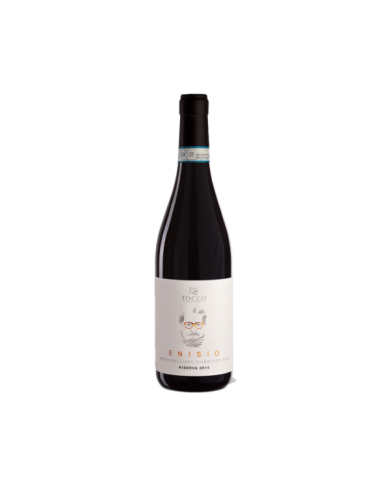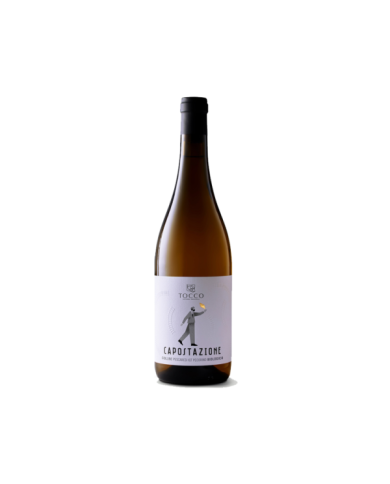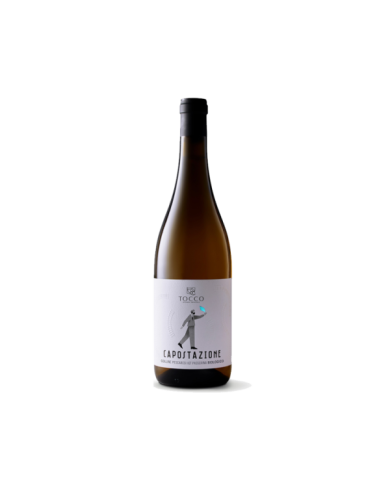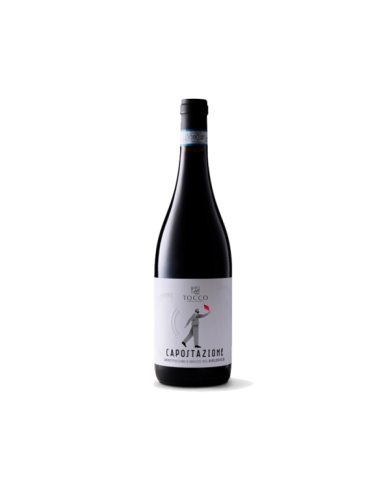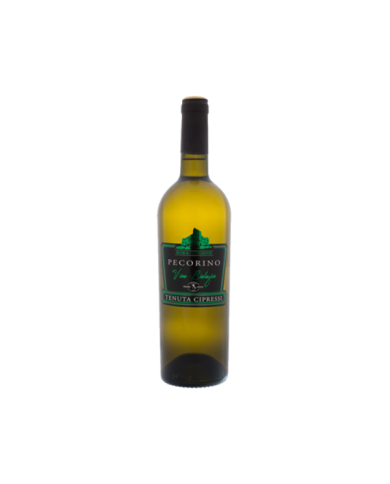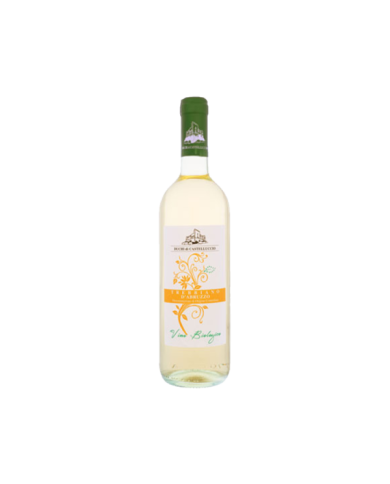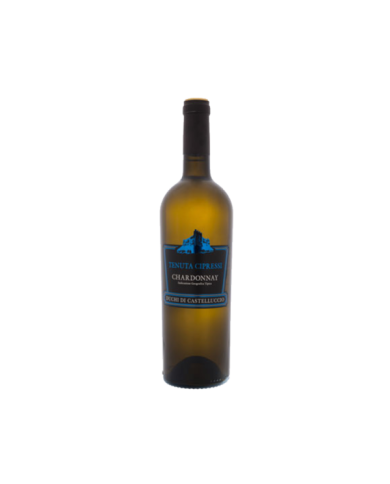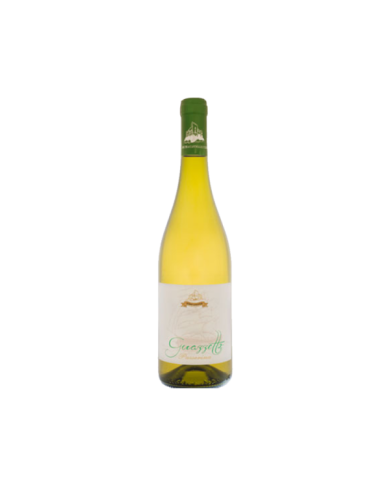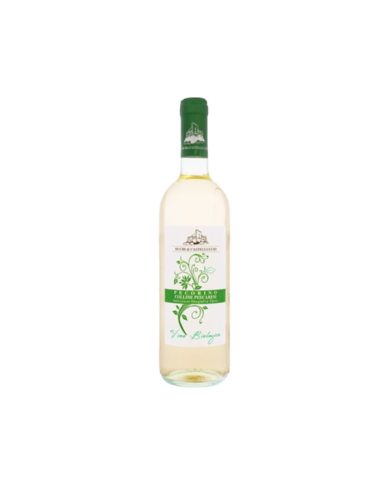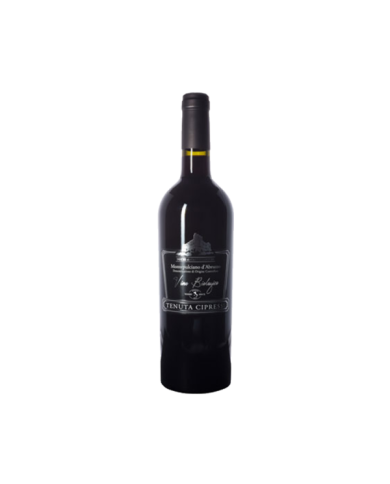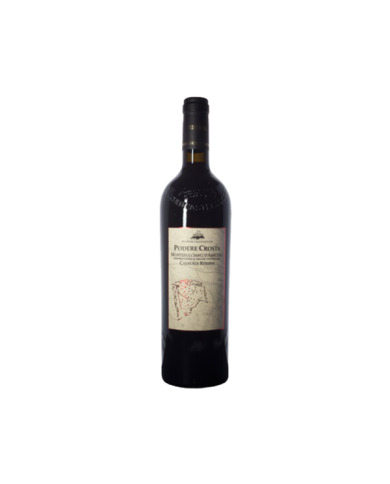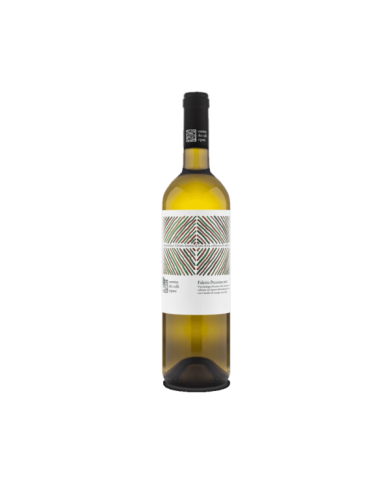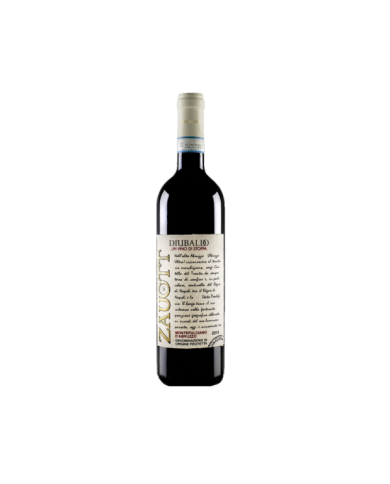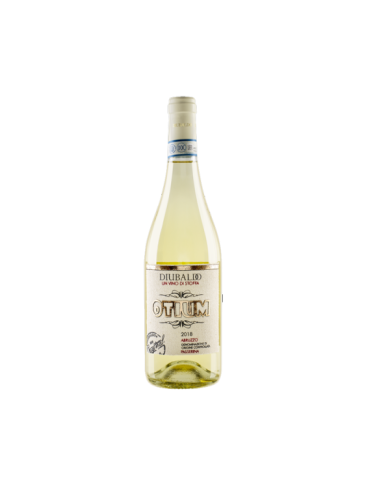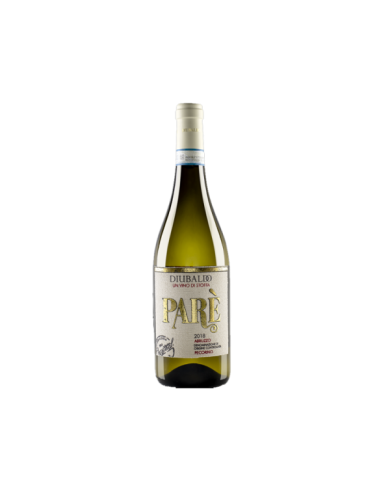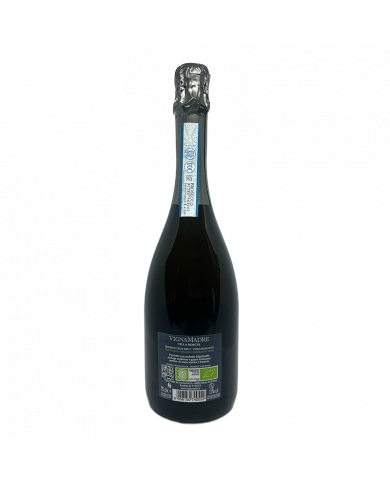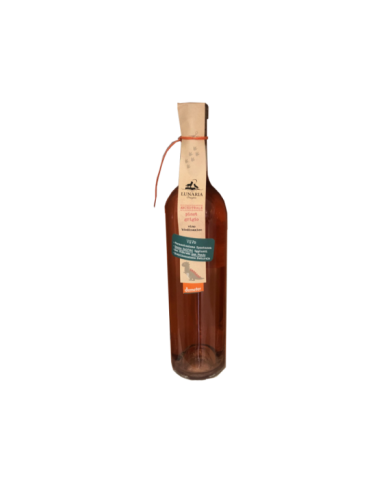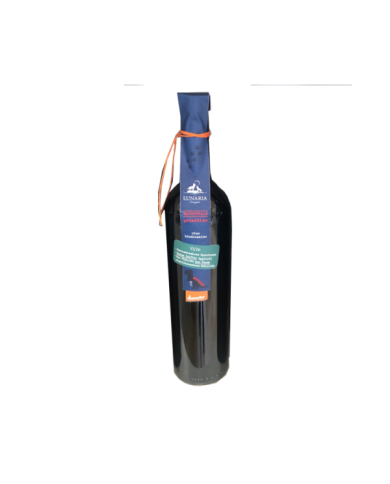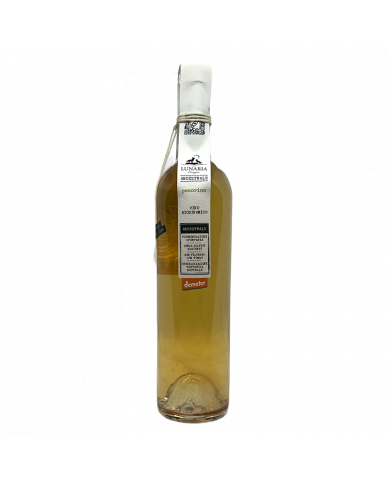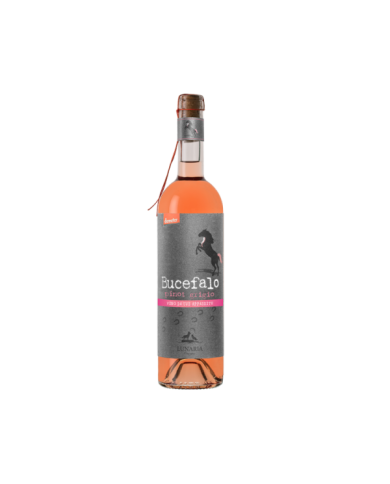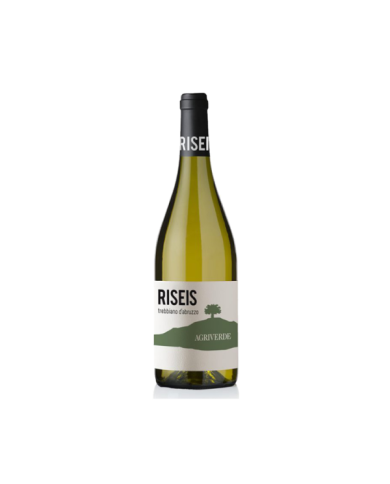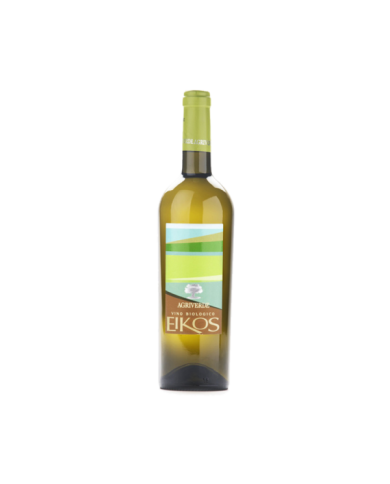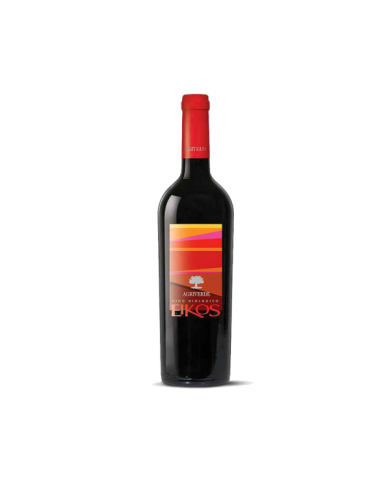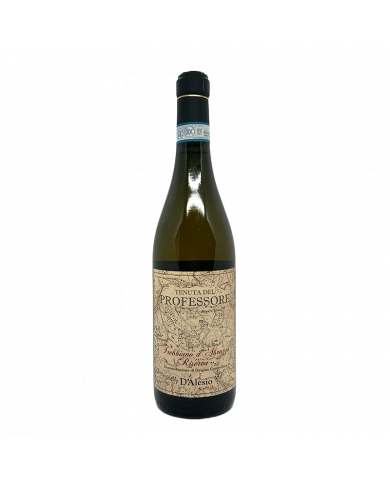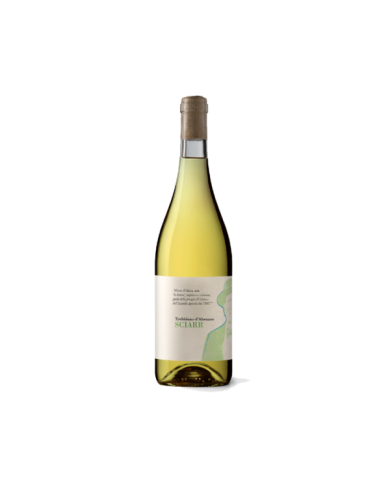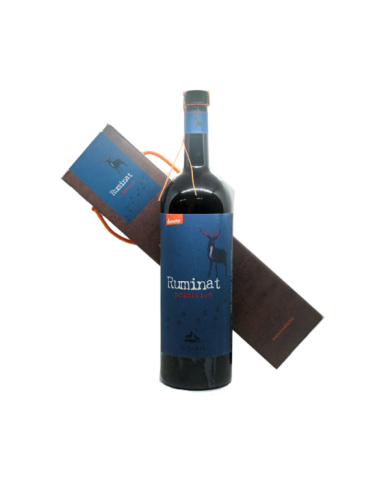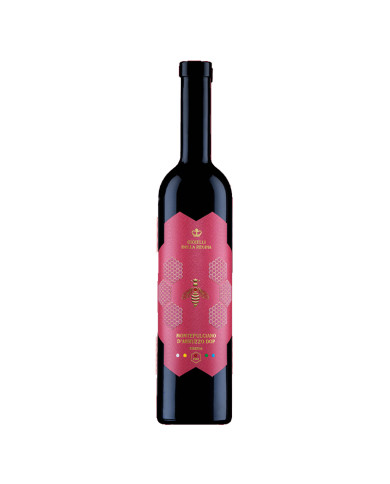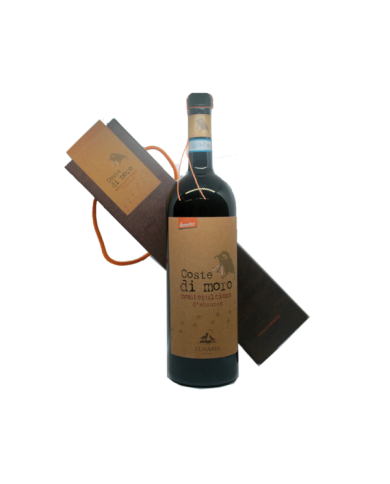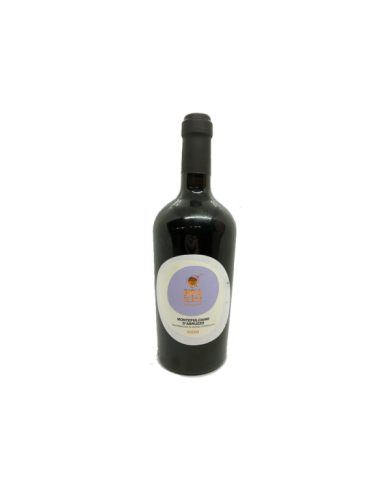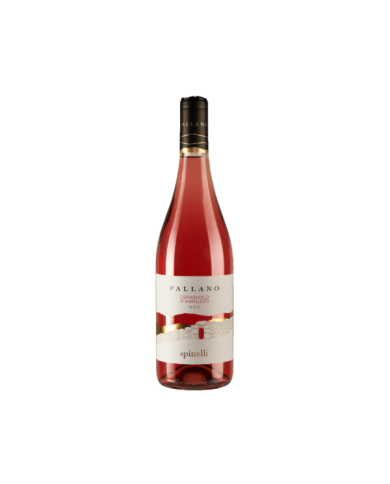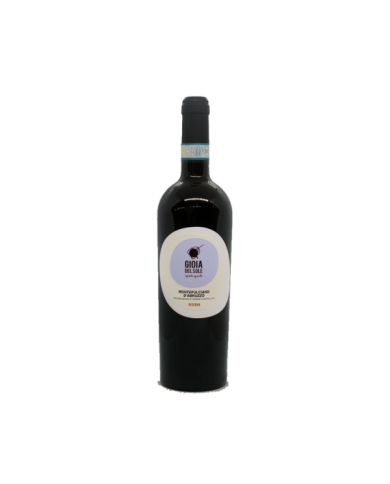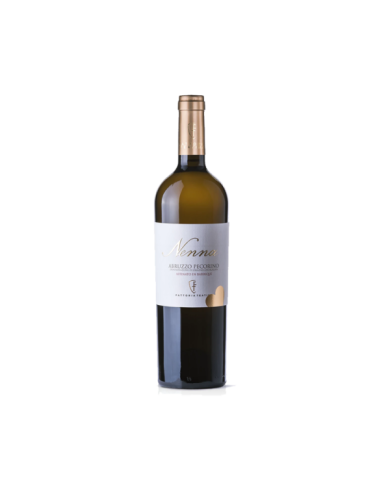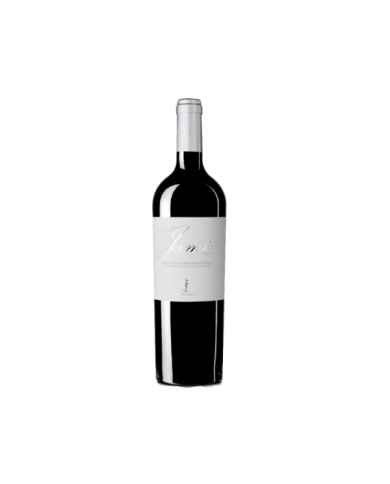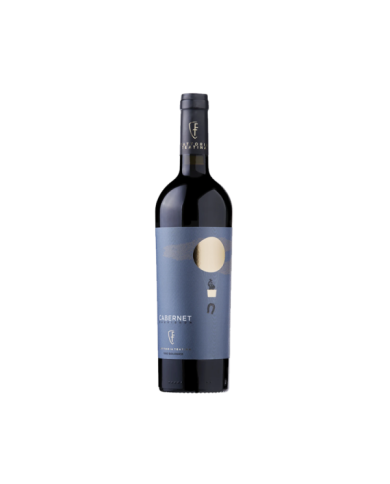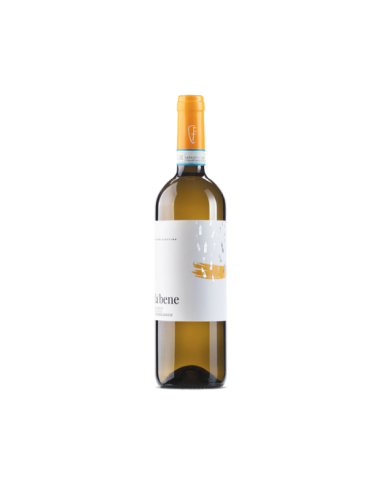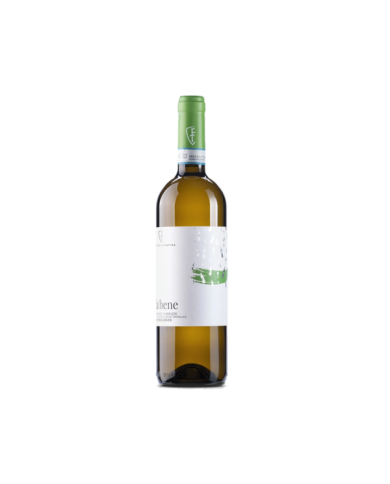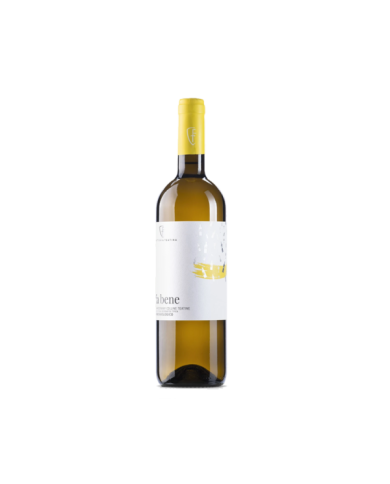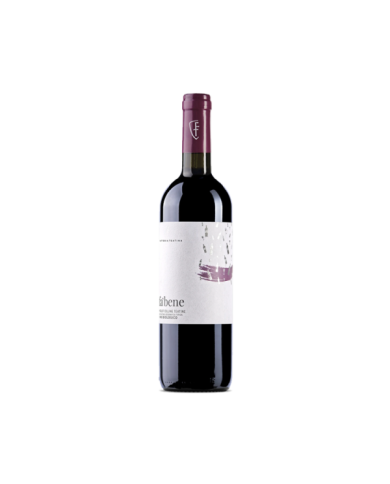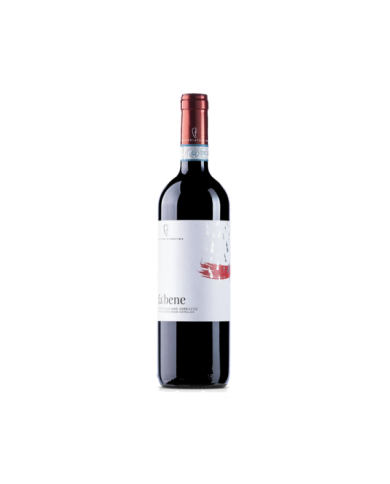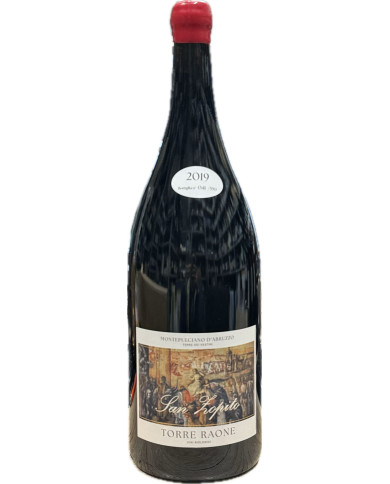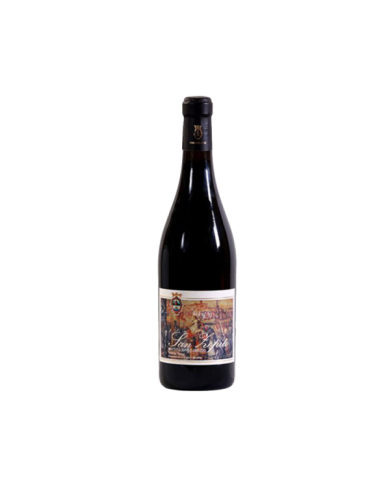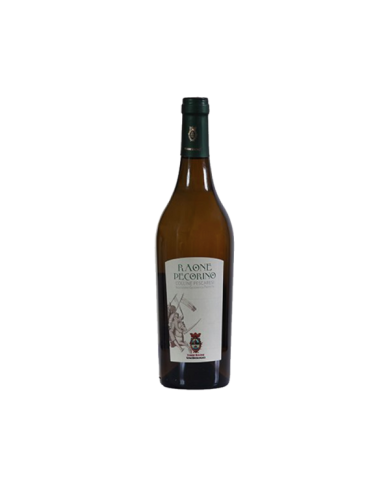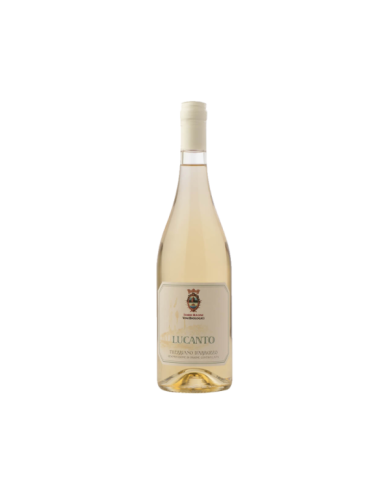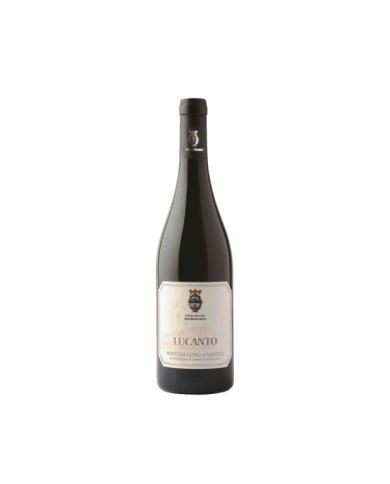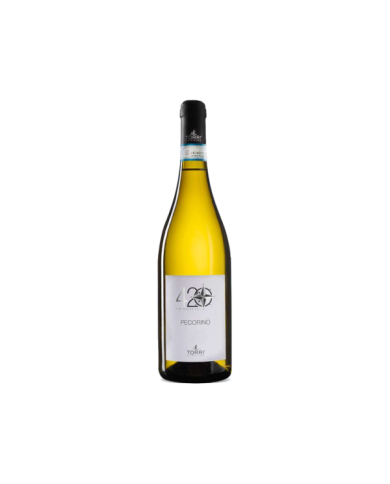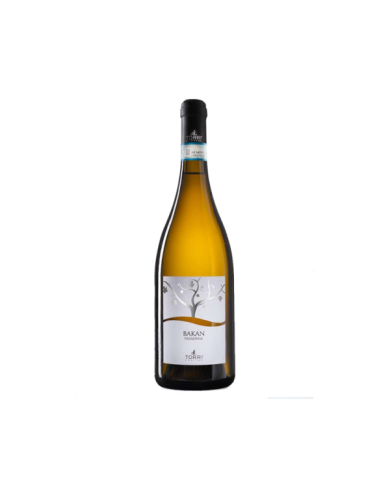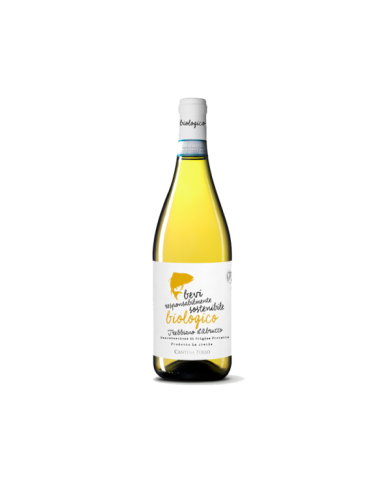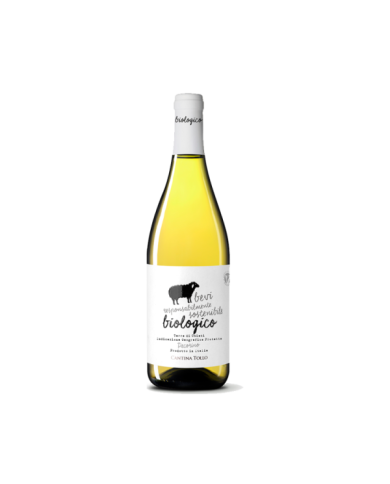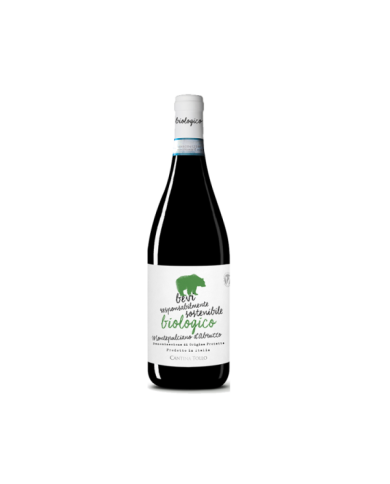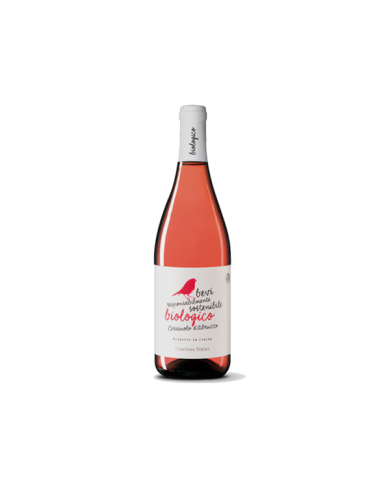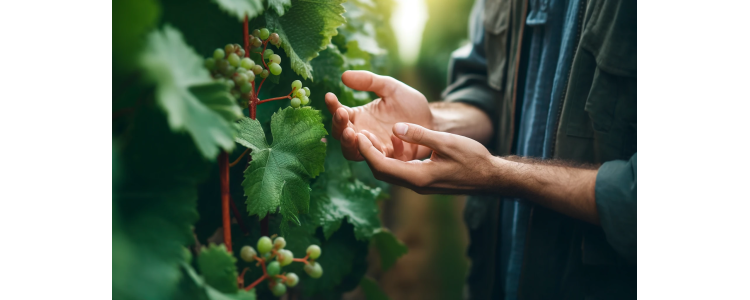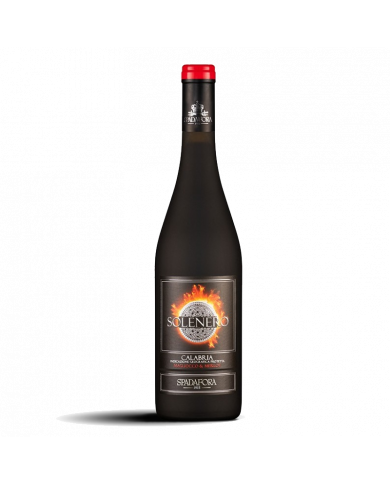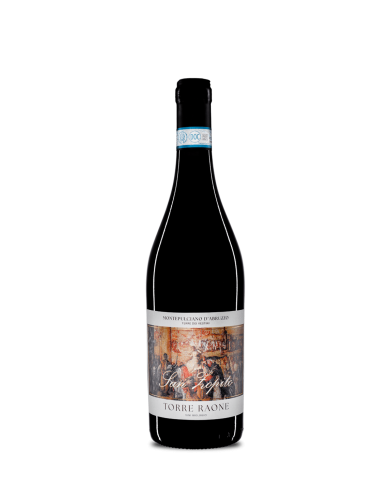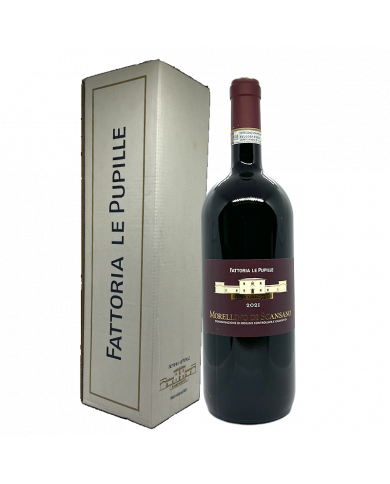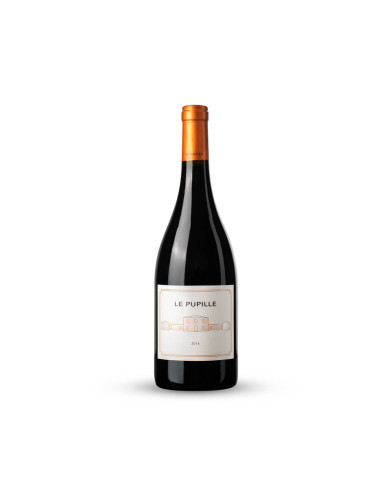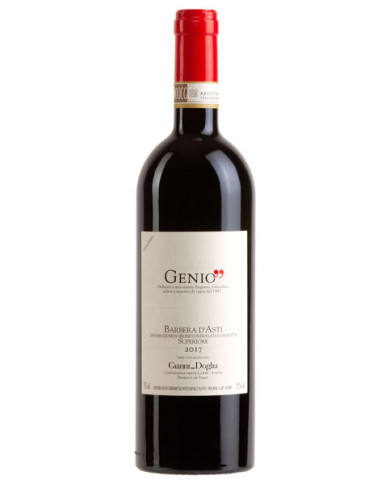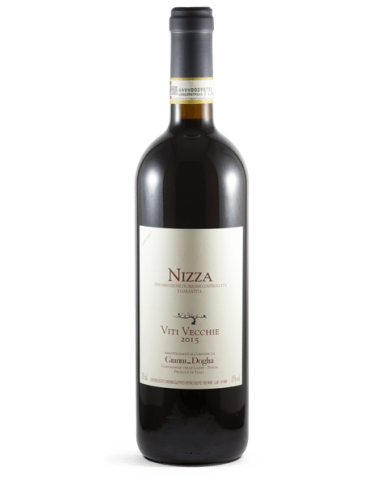Gastronomic combinations : Appetizers and fish dishes, light and summer dishes.
Gastronomic combinations: Appetizers and fish dishes, light and summer dishes. Also ideal for an aperitif.
Gastronomic combinations: Seafood appetizers and fish-based dishes in general and fresh cheeses.
Gastronomic combinations Appetizers and fish-based dishes, white meats and fresh cheeses. Ideal as an aperitif.
Food and wine recommendations: Pasta dishes and dishes based on red meats, boiled meats and medium-aged cheeses.
Classic Abruzzo Montepulciano, rustic and full
After de-stemming, fermentation begins in the presence of the skins for 7-10 days, based on the characteristics of the grapes harvested. Malolactic fermentation occurs naturally in stainless steel tanks.
- Production Area: Alpera Albacete (Spain)
- Grape variety: Verdejo Sauvignon Blanc
- Color: White
- Serving temperature: 10-12 ┬░ C
Obtained from the white vinification of Montepulciano grapes, with a selection of the ripest bunches in an early harvest. It is characterized by a particular balance between the hard and soft parts, obtained thanks to the great work in the vineyard and subsequently in the cellar through the use of modern equipment. 13% vol.
GEO , as a fair recognition of an international wine that takes the characteristics of the cultivation terroir and its winemaker. Chardonnay is one of the most versatile grape varieties which, depending on the style of cultivation, are able to give musts with a very different structure. The type of vinification used is then able to enhance some of the characteristic tasting markers of this grape.
This grape variety also cultivated in other countries besides Italy, for example in France where it is used for the production of Armagnac and Cognac, has ancient origins and already Pliny the Elder mentioned it as vinum Trebulanum. But Trebbiano has found its maximum expression in Abruzzo probably thanks to the climatic conditions and the characteristics of the land which, despite being hilly and mountainous, are affected by the proximity of the sea. It prefers clayey and limestone soils at the foot of the central Gran Sasso massif.
Among the best Italian ros├® wines, Abruzzo occupies a primary place in the list thanks to an internationally renowned ros├®: the Cerasuolo d'Abruzzo Doc The name derives from the Abruzzo dialectal term "cerasa", meaning "cherry", and is obtained exclusively in purity with the main black grape variety grown in Abruzzo
Pecorino cheese. Its name remains a mystery today, the most accredited hypothesis is the one that binds it to the transhumant sheep farming typical of Abruzzo. Today cultivated at lower altitudes than the much higher ones of historical crops, the vine, with vinification in maceration, expresses great values, for all the senses. It is certainly one of the most important whites in Italy.
Wine with an intense straw yellow color, on the nose there are hints of exotic fruit and citrus. On the palate it is well structured and accompanied by a good flavor. Ideal with appetizers and raw fish, shellfish, first and second courses based on fish. Serve at a temperature of 10-12 degrees 13% VOL
An ancient vine rediscovered and vinified using modern technologies to enhance all its aromas and flavors. Wine with a pale straw yellow color with slight greenish reflections. It is a fresh, fruity wine, with citrus notes, aromatic herbs and hints of white peach, cedar, sage, jasmine and acacia. Ideal with appetizers and raw fish, shellfish, first and second courses based on fish. Serve at a temperature of 10-12 degrees 14% VOL
Ancient vine grown in the central Italy belt. The resulting wine is pale straw yellow in color. On the nose it is intense and elegant with floral scents, notes of white pulp fruit and delicate spicy hints. In the mouth it opens on a pleasant consistency with a slightly acidic structure that gives integrated freshness to a round finish that preserves sweet fruity nuances. Ideal pairing with fish-based dishes, or fresh pasta cheeses.
Straw yellow with a good load of color to the eye. The nose is clean and punctual, characterized by fruity hints of apricot, pear and tropical fruit, then completed by chalky and floral nuances of chamomile. Savory and fresh on the palate, with good balance and good length.
Perfect to accompany seafood cuisine, it is excellent to be paired with pan-fried mullets.
Denomination Cerasuolo d \ 'Abruzzo DOC Type Ros├® wine Production area Alanno (PE) Training system Pergola abruzzese Year of planting 2003 Exposure south soil Yield per hectare 120q Harvest from 1 to 10 October Vinification the must obtained from soft pressing of the grapes, after a short contact with the skins at low temperature, it is left to ferment at a controlled temperature Organoleptic characteristics Color: cherry pink Odor: pleasant aromas of red fruits, wild strawberries and ripe cherries Taste: soft, fresh and well balanced. also structured, roasted white meats, ideal with pizzas, salami and semi-aged cheeses Serving temperature 8 ┬░ -10 ┬░ c CL.75 13.5% VOL
Stationmaster Pecorino IGT Colline Pescaresi Bio, a white wine with a bright straw yellow color with greenish reflections. The nose is fruity with pleasant notes of fresh and exotic fruit that blend with elegant floral scents. The flavor is full-bodied, fresh, with the right amount of flavor, balanced and intense. It goes well with fish-based dishes, even structured ones. White meats and soft cheeses, simple or flavored.
Stationmaster Passerina IGT Colline Pescaresi, an organic wine with a pale straw yellow color with greenish reflections. The nose is consistent with predominant floral scents and mineral and herbaceous notes. The flavor is soft, fresh, savory and balanced. Excellent match for fish dishes and creamy cheeses.
Stationmaster Montepulciano d'Abruzzo DOC Bio 2021, ruby red wine with violet reflections, the nose offers intense fruity aromas with notes of ripe red fruit. The flavor is full, soft and persistent with delicate tannins.
The whole bunches are sent to the pneumatic press and the must is fermented with its indigenous yeasts at a low temperature (12-14 ┬░ C) in stainless steel tanks for about 30 days. The refinement takes place in steel tanks and, subsequently, in the bottle. At tasting it has a straw yellow color. Intense aroma with hints of broom, white pulp fruit, and ethereal. Fresh, intense, savory and full-bodied taste. Excellent to accompany an elaborate seafood cuisine, medium-aged cheeses, structured first courses, white meats.
Dedicated by "Lu Harbin", the wind that sailors hear and decipher, to a tireless traveling companion.
Red berried grapes of the territory, harvested and pressed immediately without maceration. Vinified at low temperature. After vinification, the wine ages for 6 months in steel in order to harmonize and enhance its varietal aroma characterized by aromas of pink petal flowers, banana, pineapple, pear, wild strawberry and wild cherry. Pale pink color, on the palate it is fresh, elegant and with a pleasant finish. The pleasant salty note gives a lean and refreshing drink. Unmissable during summer aperitifs based on local butchery, it is a wine that calls one bottle after another and invites to a convivial sharing. Perfect as an aperitif, it goes well with raw seafood dishes and fried Adriatic paranza
Montepulciano d'Abruzzo DOP Chichibio is a vegan organic wine, which maintains all the characteristics of traditional wines, but produced with processes that exclude the use of any substance of animal origin, respecting the dictates of vegan nutrition and obtaining the biovegan certification. The Chichibio line is made up of bottles of organic wine and is part of the line of organic vegan wines marked by environmental sustainability, which highlight the close link between the Codice Citra and Abruzzo through collaboration with the Abruzzo Lazio National Park and Molise.
The olfactory whole is highly refined, with fruity accents of ripe peach and apricot, hints of tarragon, sage and hints of iodized notes.
Company : Cantina Tollo region : Abruzzo (Italy) Name : Terre di Chieti IGT (PGI) Vegan Type : white, dry, still Variety : Pecorino 100% Alcoholic content : 13% Year : 2021 Format: 750 ml
Straw yellow with golden reflections. The nose is fine and fruity with hints of peach, sage, broom flowers and hawthorn hints of balsamic herbs that leave room for a nice herbaceous note. In the mouth, exceptional aromatic correspondence, fresh and fruity white peach with a savory finish. Food pairings: crudit├®s, chitarrina with lobster, seafood risotto and cheeses.
No completely explicit sign is fascinating. Seduction is the space between what is shown and what is left to be imagined and slowly savored, sip after sip. It is a RedŌĆ” garnet like the emotion drawn on the cheeks, distinctly fruity, with hints of spices and licorice. It helps those who want to seduce, seduces those who think they know how to do it.
Soft like the shy, exuberant like the naive, seductive like the veteran. Cerasuolo with intriguing hints of cherry and almond. Its sweet sapidity enters with delicacy until it touches, in depth, the most daring memories.
This Abruzzese native has the solid roots of the sage, the obstinate character of the winemaker, the body of the dreamer, flexible like the vine, from the Latin viere which means precisely to bend. Jasmine and honey will smile at your delicate soul. Sage and citrus will converse with your restless spirit.
Grapes: Trebbiano d'Abruzzo DOC Year: 2020 Alcohol content: 12.5% - Format: 75cl Refinement: steel Tasting: Straw yellow color. Fruity fragrance. Fresh and persistent taste Pairings: first courses with vegetables, seafood, fish dishes
Terreum celebrates Giannicola Di Carlo's strong bond with the land of Abruzzo. 1991 is the year in which the first European organic certification was recognized for the family's wines. The Dragonfly is the symbol of the vineyards from which these wines come, which are immersed in an uncontaminated ecosystem and dominated by a lake and ancient limestone rock caves: the Bosco Valle Verde of the Di Carlo family.
Lava is the symbol of the Di Carlo family's pioneering and unconventional production philosophy, inspired by the precious mineral elements of the earth represented by the colors of the labels.
Lava is the symbol of the Di Carlo family's pioneering and unconventional production philosophy, inspired by the precious mineral elements of the earth represented by the colors of the labels.
Lava is the symbol of the Di Carlo family's pioneering and unconventional production philosophy, inspired by the precious mineral elements of the earth represented by the colors of the labels.
Iava is the symbol of the pioneering and unconventional production philosophy of the Di Carlo family, inspired by the precious mineral elements of the earth represented by the colors of the labels.
Straw yellow color, slightly cloudy, scents of white flowers and apples, at the end appears hay grass. The taste is fresh, fruity and leaves a bitter almond flavor in the mouth.
The Badia a Coltibuono Decennial Reserve, produced exclusively with native grapes, is a wine loved by enthusiasts as the emblem of the territory of origin. Wine of ancient tradition, as evidenced by the historic collection preserved in the cellars of the abbey, the Decenalle Reserve is produced to celebrate the anniversary. Aging for 24 months in barrels of various sizes and French oak barriques.
- \ n
- Type Red Wine \ n
- Vintage 2019 \ n
- Capacity 0.75 l \ n
- Country Italy \ n
- Alcohol 13.5 ┬░ \ n
- Tuscany Region \ n
- DOCG classification \ n
- Sangiovese grape \ n
\ n
\ n
\ n
\ n
\ n
\ n
- Production area: Surrounding vineyards Estaci├│n y la Boquera- Almansa (Spain)
- Grapes: 100% Verdejo
- Color: White
- Serving temperature: 10-12 ┬░ C
VIEW : Pale straw yellow with greenish reflections. SMELL : Delicate floral bouquet, citrus with very intriguing herbaceous notes. TASTE : On the palate it is citrusy, savory, fresh. It is characterized by a marked acidity.
VIEW : Pale straw yellow with greenish reflections. NOSE : Aromas of elderberry, ripe fruit with hints of pear. TASTE : Acidic vein and sapidity are balanced with the structure and softness.
Jam├© is a 100% Montepulciano d'Abruzzo vintage. Serving temperature: 18/20 ┬░ C Color: ruby red with intense violet reflections Bouquet: fresh and intense Taste: round, fruity, slightly tart finish. Pairings: red meat, aged cheeses. It is surprising if proposed outside the "usual" schemes, for example with the famous "Vasto-style fish soup".
GEO , as a fair recognition to an international wine that takes the characteristics of the cultivation terroir and its winemaker. Chardonnay is one of the most versatile grape varieties which, depending on the cultivation style, are able to give musts with a very different structure. The type of vinification used is then able to enhance some of the characteristic tasting markers of this grape.
Meirggio di Fontodi is a juicy and refined Sauvignon Blanc that has a lot to offer white wine lovers. The nose is stolen and crunchy with hints of river rocks, fresh herbs, white wildflowers and a sprinkling of peppery spices. Agile, this wine enhances the palate, driven by its two engines: savory and marked acidity. Pleasant upon release, this sophisticated white will drink wonderfully even in a few years' time. Meriggio comes from the Fontodi vineyard, facing north, La Rota. The grapes ferment in stainless steel at a controlled temperature, and then the wine matures on the lees for six months, mainly in stainless steel, with a small percentage in amphora.
Flaccianello della Pieve is one of the symbolic products of Sangiovese in the Chianti area. The Flaccianello receives minimal treatments in the cellar, according to a production philosophy perfectly consistent with the line undertaken in the vineyard, characterized by a high manual selection of the best grapes: only spontaneous fermentation with indigenous yeasts is carried out.
Avignonesi 's Nobile di Montepulciano is an intense and full-bodied Tuscan red wine, aged for 18 months in barrels and barrique. The nose is very intense, with notes of fresh red berry fruit, undergrowth and sweet spices. On the palate it is elegant, round, structured, with velvety tannins and a persistent finish
This charming chianti every day takes its name again from a song by Sting - When We Dance. With 95% Sangiovese blended with Canaiolo and Colorino, the alcohol content is 13%. When We Dance is a magnificent ruby red color and has a balanced and soft palate. Perfect to combine with traditional Tuscan recipes.
The hints of red fruits such as cherry, blueberry, currant and wild blackberry and plum blend with the floral notes of rose and violet with a light spicy note.
The first Dynamic Energy Vineyard (last patent by the Di Carlo family). Nature and man merge with the energy of colours... to improve biodiversity, the vitality of the soil, the positive frequencies on plants and fruits, people, animals and useful insects.
Here Montepulciano dresses in pink and goes by its own denomination: Cersauolo d'Abruzzo DOC. Vigna Madre does the rest and gives us an organic wine with an intense cherry color (needless to say), with fruity aromas of cherry, strawberry, raspberry and wild blueberry. When tasted it presents itself as a wine of excellent consistency, great balance and pleasant acidity. To be enjoyed until the last drop to reach the slightly almondy finish. Excellent ally as an aperitif, it goes well with first and second courses based on meat, fish and vegetables. Try it with fried foods and pizza.
We have abolished substances such as Albumin (from eggs) and Casein (from milk) which are commonly used for wine clarification processes.
We have abolished substances such as Albumin (from eggs) and Casein (from milk) which are commonly used for wine clarification processes.
GRAPE Pecorino ALCOHOL CONTENT 13.5% vol COLOR White
It seduces with naive freshness, but grants sublime sensations of fragrant maturity. From the generosity of a limestone and clayey earth, a wine with hints of sage and mint. The inseparable embrace of two lovers!
Absolute love It is the bond that remains even when it is leaving. It is the vision that comes when you are now blind. It is the promise that is declared by denying its intensity out of modesty. It is the joy that pervades your soul starting from sensations felt outside of it. It is White Pearl, a courteous love of yesteryear. It is the magic granted only to those who know how to love in an all-encompassing way. It is eternity swallowed as in a dream with smoky but also vanilla aftertaste. It is the native white you were looking for, aged for over 18 months in Barrique. She is the imaginative and diaphanous woman whose essence always dwells in your thoughts.
An ancestral practice is that of winemaking in stone. Narration of shepherds and echoes of transhumance. Autochthonous tales like bunches that ferment in the millstones to give us mineral wines with an authentic taste. In the rocky basins of Petra Iniqua (Pietranico) the nectar is dressed in history and nostalgia, captivating our senses. The vineyards are located in the surroundings of Pietranico, a small village in the Pescarese area, where from ancient times the use of rock stone basins for pressing and winemaking was widespread.
A product that invites to a new dimension of consumption. A wine that loves the environment and sincere tastes. Pairings: Savory first courses, roasts, sausages and semi-aged cheeses.
Nobody makes a Cerasuolo like Corrado's. It's a wine that makes you fall in love the exact moment you put it in your mouth, so full, so satisfying, so complete. Fruit and robustness meet to give life to a Cerasuolo of the highest level.
The wine ŌĆ£Fonte Raviliano biancoŌĆØ is a Trebbiano, certainly one of the most important wines produced by the De Angelis Corvi company. The De Angelis Corvi company is located in one of the most beautiful wine-growing areas of the province of Teramo and the Abruzzo region in general. The ŌĆ£Fonte Raviliano biancoŌĆØ wine by De Angelis Corvi as Trebbiano is characterized by its characteristic and original organoleptic profile at the same time. The wine ŌĆ£Fonte Raviliano biancoŌĆØ by De Angelis Corvi is a white, still and dry wine, vinified from grapes in the context of the typologies foreseen by the Trebbiano d'Abruzzo DOC denomination. The De Angelis Corvi company was included in the Quattrocalici Wine Guide because it is one of the most important wine-growing companies in the province of Teramo. The area in which the De Angelis Corvi company is located is historically suited to viticulture. In particular, the numerous awards obtained by agricultural companies in the province of Teramo have further stimulated producers to invest in the area to make the best use of its production potential, to constantly improve quality and tackle new markets. The wines of the De Angelis Corvi company and in particular the Trebbiano ŌĆ£Fonte Raviliano biancoŌĆØ, are characterized by the right sugar and alcohol content and good fixed acidity, which contributes to enhancing their aromas and maintaining them over time. The winery produces approximately 6500 bottles of the "Fonte Raviliano bianco" wine, testifying to the importance that this wine has in the context of the company's production.
Obtained from the pure vinification of Montepulciano grapes. It is a young wine with a period of maturation in steel barrels of 6 months and a subsequent refinement of 4 months in the bottle. Intense ruby red color with marked floral and ripe fruit scents, it is a soft and balanced wine. 13.5% vol.
Montepulciano d'Abruzzo DOP Chichibio is a vegan organic wine, which maintains all the characteristics of traditional wines, but produced with processes that exclude the use of any substance of animal origin, respecting the dictates of vegan nutrition and obtaining the biovegan certification. The Chichibio line is made up of bottles of organic wine and is part of the line of organic vegan wines marked by environmental sustainability, which highlight the close link between the Codice Citra and Abruzzo through collaboration with the Abruzzo Lazio National Park and Molise.
The wine has a deep ruby red color with an intense aroma and fruity aromas, with notes of ripe red fruit as well as tertiary hints of green pepper, coffee, licorice and nutmeg. The warm, full-bodied, soft, tannic and long-lasting aromatic flavor is a real delight for the palate. To best enhance all its organoleptic characteristics, it is recommended to taste it in company and with grilled or braised red meats, cured meats and aged and flavored cheeses.
Stationmaster Pecorino IGT Colline Pescaresi Bio, a white wine with a bright straw yellow color with greenish reflections. The nose is fruity with pleasant notes of fresh and exotic fruit that blend with elegant floral scents. The flavor is full-bodied, fresh, with the right amount of flavor, balanced and intense. It goes well with fish-based dishes, even structured ones. White meats and soft cheeses, simple or flavored.
Stationmaster Passerina IGT Colline Pescaresi, an organic wine with a pale straw yellow color with greenish reflections. The nose is consistent with predominant floral scents and mineral and herbaceous notes. The flavor is soft, fresh, savory and balanced. Excellent match for fish dishes and creamy cheeses.
Stationmaster Montepulciano d'Abruzzo DOC Bio 2020, ruby red wine with violet reflections, the nose offers intense fruity aromas with notes of ripe red fruit. The flavor is full, soft and persistent with delicate tannins.
Tenuta Cipressi Montepulciano d'Abruzzo DOC 2014 Organic Wine - Duchi di Castelluccio .
It is a wine of great character, complex. Proud and potential, as in life a boy called in our territory is, precisely Zauott, a young man, who manages to withstand the evolution of the years, also demonstrating the best. ŌĆ£ZAUOTTŌĆØ is obtained from grapes produced from the oldest vineyards, with an average yield of 80/90 quintals per hectare.
Pecorino cheese. Its name remains a mystery today, the most accredited hypothesis is the one that binds it to the transhumant sheep farming typical of Abruzzo. Today cultivated at lower altitudes than the much higher ones of historical crops, the vine, with vinification in maceration, expresses great values, for all the senses. It is certainly one of the most important whites in Italy.
Spontaneous fermentation Without added sulphites Unfiltered with bottom Natural stabilization Sulphite-free, Organic, Vegan and Biodynamic Wine Demeter certified produced with the Ancestral method
Spontaneous fermentation Without added sulphites Unfiltered with bottom Natural stabilization Sulphite-free, Organic, Vegan and Biodynamic Wine Demeter certified produced with the Ancestral method
Straw yellow with golden reflections. The nose is fine and fruity with hints of peach, sage, broom flowers and hawthorn hints of balsamic herbs that leave room for a nice herbaceous note. In the mouth exceptional aromatic correspondence, fresh and fruity white peach with a savory finish. Food pairings: crudit├®s, chitarrina with lobster, seafood risotto and cheeses.
Intense ruby red with purple hues. The nose reveals intriguing varietal aromas of small black fruits, violets, licorice, vanilla and cocoa. In the mouth it is fresh and has an excellent structure with soft tannins and long persistence. Food pairings: cured meats, first courses of land, roast meats, game, aged cheeses.
Farmers from the beginning of the 19th century. The D'Alesio farm, from 40 hectares of property on the Abruzzo hills of Citta Sant'Angelo, produces in organic farming: wine, extra virgin olive oil, legumes and selected cereals. SCIARR and D'ALESIO are the brands of excellence, selection and quality, respecting the territory and tradition. Result of the meeting of thoughts of three generations. The selection of their best grapes gives life to the D'ALESIO line, produced only in the most favorable years and in full respect of the natural cycles of the vine and wine.
This vine was mentioned for the first time by Cato the Censor in the second century BC, who attributed the origin of this kind of grapes to the Greek colonists. The Pecorino grapes seem to derive their name from the fact that the sheep, walking through the vineyards, would have shown several times to like the fruits.
It is the only DOC in Abruzzo dedicated exclusively to white wine, perhaps the best among the Trebbiani.
The wine production of Cantina Lunaria finds expression from the love and respect for an authentic land, from the desire to leave its pungent charm unchanged while making the most of its potential.
Montepulciano d'Abruzzo Riserva 2008 "The jewels of the Queen" , an interesting vintage from the climatic point of view with a sunny September and October The wine shows notes of ripe fruit and sweet spices, round with a finish on sweet notes of spices and red fruits.
The grapes, after a careful selection, are de-stemmed and crushed, the skins are left in contact with the must with their indigenous yeasts for 10/15 days at a constant temperature of 25/28 ┬░ C. The refinement takes place partly in oak barrels and partly in stainless steel tanks for at least four months. Refinement in the bottle follows. At tasting it has an impenetrable ruby red color. Aroma of red fruit and black cherry jam on everything, light notes of cocoa and toasting complete the bouquet. Warm taste, rightly tannic and therefore soft, intense, and with the typical almond finish. Ideal with cold cuts, grilled and baked meats, first courses with very structured sauces.
Cherry red color with bright purple hues. Intense fruity aromas, delicate floral notes and hints of berries and black cherry. With a good structure, it is soft, fresh and balanced. Excellent as an aperitif and perfect with pizza, it is definitely versatile in combinations at the table. It goes well with both white meats and fish, but is unsurpassed with fish broth, tripe, fresh cheeses and grilled vegetables.
Deep garnet red color, intense and consistent in the glass. Wild black cherry, plums, blackberries and ripe currants: the nose opens on clear fruity notes, and then also perceives floral nuances of violet, as well as clear tertiary references of vanilla, chocolate, cinnamon, pepper and licorice. Balsamic nuances and officinal herbs complete the olfactory picture. The tannins on the palate are sculpted with chisel, the sip is warm and soft, with excellent persistence.
It goes very well with red meat. Try it with the tagliata with balsamic vinegar.
Deep garnet red color, intense and consistent in the glass. Wild black cherry, plums, blackberries and ripe currants: the nose opens on clear fruity notes, and then also perceives floral nuances of violet, as well as clear tertiary references of vanilla, chocolate, cinnamon, pepper and licorice. Balsamic nuances and officinal herbs complete the olfactory picture. The tannins are sculpted with chisel on the palate, the sip is warm and soft, with excellent persistence.
It goes very well with red meat. Try it with the tagliata with balsamic vinegar.
Straw yellow with a good load of color to the eye. The nose is clean and punctual, characterized by fruity hints of apricot, pear and tropical fruit, then completed by chalky and floral nuances of chamomile. Savory and fresh on the palate, with good balance and good length.
Perfect to accompany seafood cuisine, it is excellent to be paired with pan-fried mullets.
Straw yellow color to the eye. Intense olfactory bouquet, characterized above all by fruity references of apricot, green apple, pineapple and banana, complemented by citrus nuances and almond tones. Full-bodied in tasting, balanced and savory, with good persistence.
Extremely versatile in food pairings, it is worth trying to accompany trenette with pesto.
Intense ruby red with which it presents itself to the eye. The nose is pleasantly fruity, with flavors of blackberry, black cherry, raspberry, plum and blueberry which are added with subtle floral nuances of violet. The mouth is soft and warm, balanced and consistent with the nose, rightly tannic and of good length.
To be combined with second courses based on meat, it is excellent with grilled veal ribs.
Color: In the glass a bright straw yellow with golden hues that seduces by its brilliance. Smell: Excellent olfactory intensity which reveals fresh floral and fruity aromas, with vegetal notes of freshly cut grass. We can recognize citrus fruit, apricot, sage, linden and even some tropical fruit. Taste: A pleasantly warm and attractive structure stands out in the mouth, enlivened by an acidic bite and a whimsical antithesis sapidity, which balance. The taste is in perfect harmony with the sense of smell, which highlights a pleasant and persistent mineral aftertaste.
It is the most famous white grape variety in Abruzzo and a choice, that of Cantina Tollo , to give it a version from 100% organic grapes, grown in the vineyards located on the hills of the province of Chieti. The Trebbiano harvest is carried out starting from the second half of September followed by crushing and destemming and a cold maceration, to extract as much as possible the aromatic components of the vine, known for not being among the most fragrant. And it is precisely the respect for the raw material, at Cantina Tollo , that makes the difference, culminating in the refinement in stainless steel in order not to cover or alter in any way the very essence of Trebbiano, a wine that has always made simplicity its force.
Company : Cantina Tollo region : Abruzzo (Italy) Name : Terre di Chieti IGT (PGI) Vegan Type : white, dry, still Variety : Pecorino 100% Alcoholic content : 13% Year : 2020 Format: 750 ml
Sale of Organic Wines: everything you need to know
Organic wines represent a sustainable and natural choice for consumers who want to buy quality products. In this article, we'll reveal everything you need to know about selling organic wines, from product characteristics to online purchase methods.
What is an organic wine
An organic wine is a product that is produced according to the organic cultivation method. This means that the grapes used for the production of wine are grown without the use of pesticides, chemical fertilizers and other chemical products harmful to the environment. Furthermore, during the production of organic wine, no artificial preservatives or additives are used.
The characteristics of organic wines
Organic wines are distinguished by their quality and their unique taste. Being produced with naturally grown grapes, organic wines have a more authentic and genuine taste than conventional wines. Additionally, organic wines are generally lighter and more delicate on the palate, with balanced acidity and a fruity aroma.
The sale of organic wines online
Selling organic wines online is one of the most comfortable and convenient ways to buy this quality product. Thanks to the spread of e-commerce and the growth in demand for organic products, there are more and more online wine shops offering high quality organic wines.
To buy organic wines online, it is important to choose a reliable and professional seller who offers a wide choice of quality products. Furthermore, it is advisable to read the reviews of other customers to get an idea of the quality of the service and the products offered.
The advantages of organic wines
Organic wines represent a sustainable and environmentally friendly choice. The cultivation of grapes according to the organic method reduces the impact on the ecosystem and preserves biodiversity. Additionally, organic wines are free from harmful chemicals, making them healthier and safer for consumption.
How to choose the right organic wine
When choosing an organic wine, it is important to take into account the characteristics of the product and your personal preferences. It is advisable to read the labels of organic wines to learn about the grape varieties used, the place of production and the cultivation method. In addition, you can consult the reviews
The organic certification of wines
To ensure the quality and sustainability of organic wines, an official certification is required. In Italy, the certification of organic wines is managed by the Ministry of Agricultural, Food and Forestry Policies (MIPAAF), which issues the "Organic Agriculture" quality mark.
To obtain organic certification, wine producers must follow rigorous cultivation and production criteria, which include the use of sustainable and environmentally friendly agricultural practices. Furthermore, organic wines must comply with certain sulfur limits and cannot contain artificial additives or preservatives.
The types of organic wines
There are different types of organic wines, which differ in the type of grape used and the production method. Some of the most common grape varieties for organic wines are Sangiovese, Chianti, Pinot Noir, Merlot, and Cabernet Sauvignon.
In addition, there are also organic wines with no added sulphites, which are free from chemicals and offer an even more authentic and natural tasting experience. These wines are particularly suitable for people suffering from food allergies or intolerances.
Tips for tasting organic wines
To fully appreciate the quality of organic wines, it is important to taste them correctly. Here are some tips for tasting organic wines:
- Use a clear crystal glass, which allows you to evaluate the color and texture of the wine;
- Observe the wine in the light to evaluate the transparency and intensity of the color;
- Smell the wine to grasp its aromas and perfumes;
- Taste the wine, swirling it in your mouth to appreciate its taste and structure;
- Pairing organic wine with organic foods, to enhance their natural characteristics.
To conclude, buying organic wines online can offer many advantages, including greater convenience, a vast choice of products and greater transparency on the quality and origin of the wines. However, it is important to choose a reliable and professional e-commerce that offers guarantees of safety and quality on the products offered.
Finally, it is important to remember that the choice of organic wines is not just a matter of taste, but also of social and ecological responsibility. Choosing to buy organic wines means supporting sustainable agricultural practices, respecting the environment and contributing to the protection of our planet. In this way, every consumer can become an active actor of change, promoting a healthier and more sustainable lifestyle for everyone.

